
Atlantic Technological University


Atlantic Technological University

“We are dedicated to enabling sustainable economic, social, and cultural development; connected to our region and with a mindset that reaches far beyond it.”
Dr Orla Flynn President ATU

Atlantic Technological University (ATU) was established on 1 April 2022 following the merger of Galway/Mayo Institute of Technology, Institute of Technology Sligo, and Letterkenny Institute of Technology. We are a new University that builds on the excellence of our legacy institutions and their service, for over 50 years, to the Northern and Western Region. ATU is one of the largest multi-campus universities on the island, serving a diverse group of learners, staff, communities, and organisations from our region and further afield. Our University stretches along the Wild Atlantic Way with nine campuses located in Galway, Mayo, Sligo, and Donegal. We are dedicated to enabling sustainable economic, social, and cultural development; connected to our region and with a mindset that reaches far beyond it.
As a Technological University of scale, we have over 23,000 students and 2,500 staff. We deliver an extensive portfolio of over 600 programmes that promote flexibility, access, postgraduate and employment opportunities. Our students are central to our ambitions to deliver practice-orientated study, and research that seeks to address the major challenges facing society and the world. We are a public university, pursuing learning and research for the public good.
Our achievements since designation are considerable, and they include: becoming members of a new European University Alliance, EU GREEN, which comprises nine European universities situated in more peripheral regions of Europe; working across multiple faculties in ATU and with the three Education and Training Boards in our region to develop and validate
three new tertiary education awards; and expanding craft apprenticeship offerings to our Donegal Killybegs and Mayo campuses for the first time.
Our proposed organisational design is at an advanced stage and involved an in depth and wide-ranging engagement with staff, students, and external stakeholders. The inaugural ATU Strategic Plan has been approved by our Governing Body and will be launched in April 2024; this represents a significant milestone in the progression of ATU. It outlines our vision: to become an internationally renowned university that enhances the quality of life in our region, and our mission: to enrich our region by delivering academic and research excellence working collaboratively with regional, national, and international partners. It is underpinned by values of respect, inclusion, trust, collaboration, ambition and innovation.
ATU welcomes the CINNTE Institutional Review process and the opportunity to reflect on our progress to date and identify areas for enhancement.
I would like to sincerely thank everyone who has been involved in producing the profile.
Our first Institutional Profile is a both an introduction to ATU and a living document that can be updated annually to provide accurate data pertaining to all our activities.
Dr Orla Flynn President ATU
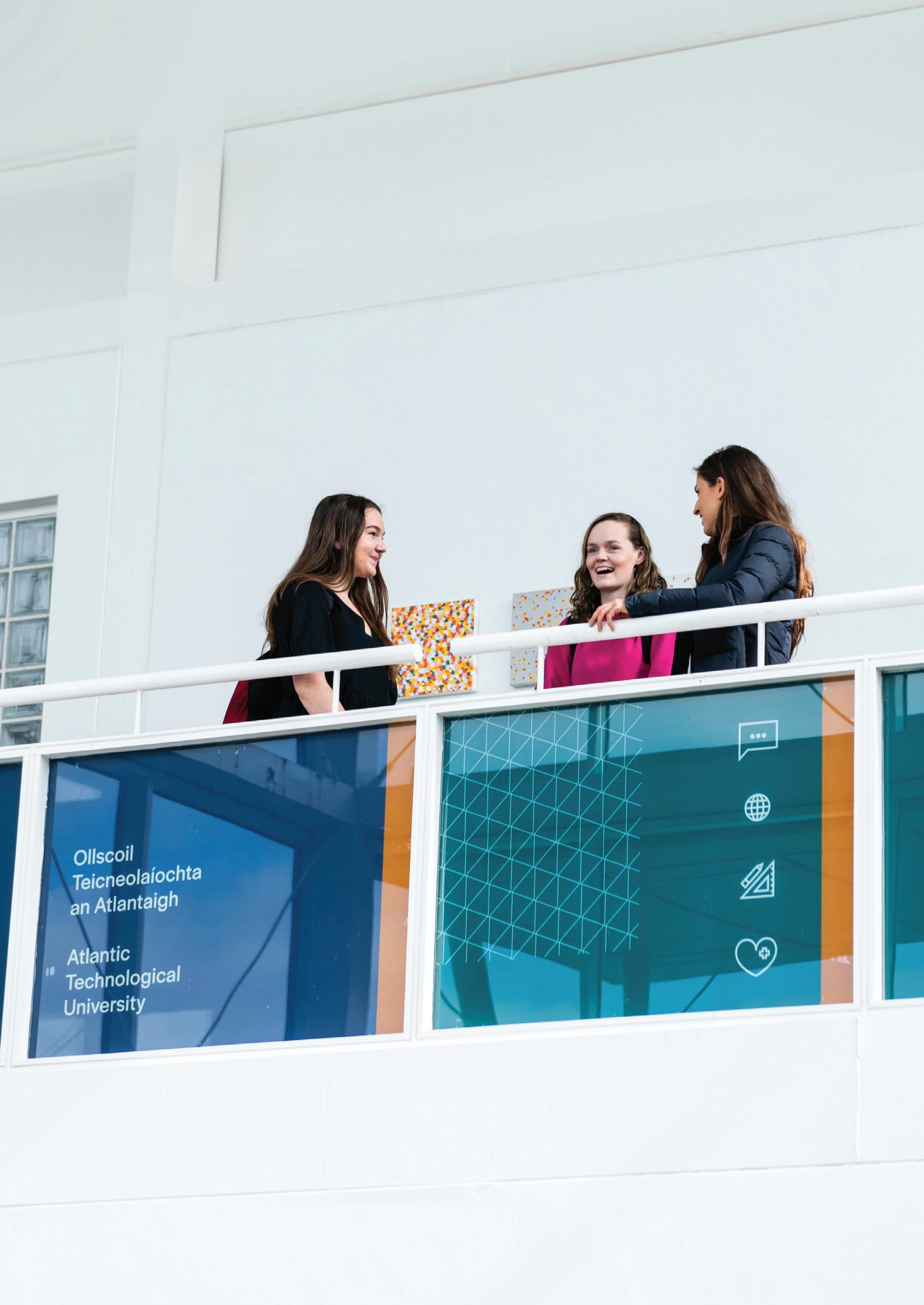

Atlantic Technological University (ATU) is a multicampus university, established on 1 April 2022 to serve the Northern and Western region of Ireland and beyond. As envisaged in the Technological Universities Act 2018, ATU operates as an anchor higher level education institution in our region, working collaboratively with Government, Industry and Community stakeholders to act as a catalyst for social, cultural, and economic development. ATU has adopted a lead role in providing access to higher education, industry engagement, research and innovation, internationalisation and will contribute to a vibrant regional innovation eco-system.
The Northern and Western region, served by ATU, has a geographical area of 25,277 km², covering 36.2% of the national landmass. The region is sparsely populated and is home to approximately 18% of the national population. However, the region also includes significant urban areas such as Letterkenny, Sligo, and Galway City. Our region is distinctive in many ways – it covers 50% of the now well established Wild Atlantic Way and includes 50% of the inhabited islands of Ireland. It also includes three of the country’s seven Gaeltachtaí, (an area in Ireland where the Irish language is the main language spoken by the majority of the local population). The region’s landmass covers 90% of the border between the Republic of Ireland and Northern Ireland. Cross-border economic activity plays a large role in driving growth within this region, and it is estimated that approximately 15,000 people cross the border for work or study each day. The region offers a high level of cultural, artistic, and outdoor activities providing an excellent quality of life for its inhabitants.
Our commitment to our region is illustrated in Figure 1, which outlines the number of students that enrol in ATU from across the Northern and Western regions. While most of our students come from the counties in which our campuses are located, ATU is unique as it attracts students from every county in the country, illustrating our broad reach.
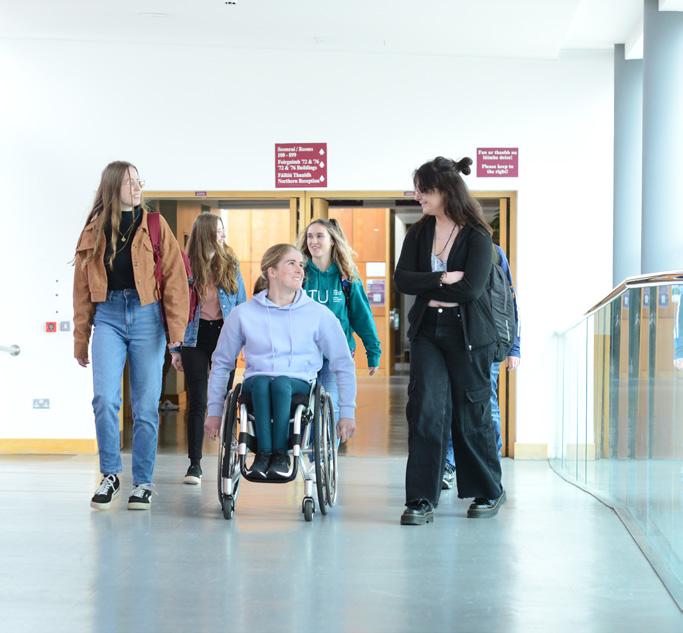
ATU’s overarching goal is to develop employability in our graduates as reflective lifelong learners, throught equipping them with the requisite knowledge, skills, personal attributes, and confidence to reach their career aspirations, whilst ensuring we meet the needs of our industry partners and employers from across the public and private sector. Using a well-established employability framework (see HERE), we have set out the ways in which we provide opportunities for students to develop their employability skills to be empowered to become the best-prepared graduates in the region.
A study by the Northern and Western Regional Assembly recommends that a policy of ‘positive discrimination’ is required to accelerate growth and stem decline in the North, West, and Border communities of Ireland. The report ‘A Region in Transition: The Way Forward’ (See HERE) found startling levels of inequality in terms of investment across several key areas such as health, education, infrastructure and transport. Failure to address these critical investment shortfalls means that a ‘two-speed economy’ has developed in Ireland. It has also emerged that the EU has downgraded the Northern and Western region from being considered as ‘Developed’ and has applied a new designation of ‘In Transition’. Such a reclassification shows that the Northern and Western region has not prospered economically compared to the other regions of Ireland. This highlights the critical role for ATU in serving its regional and development remit.
ATU St Angelas, formally St Angela’s College, is the newest member of ATU, following incorporation on 1 November 2023. ATU St Angelas offers undergraduate and postgraduate programmes to 1600 full-time and part-time students. The institution has a distinguished history of providing high-quality education and offers a diverse range of academic programmes, including home economics, nursing and health studies, healthcare management, education, special education, religious education, Gaeilge, nutrition, and science and disability studies. As St Angelas College joined ATU in November 2023, we include a separate section on data related to ATU St Angelas.
This first University Institutional Profile is designed to be a living document to serve the many needs for accurate and relevant data pertaining to the diverse range of activities ATU is now involved with. This inaugural version contains definitive data related to the 2022/23 academic year (1 September to 31 August) unless indicated otherwise. Figure 2 captures ATU at a Glance in 2022-2023.
3 captures the location of all nine ATU Campuses.
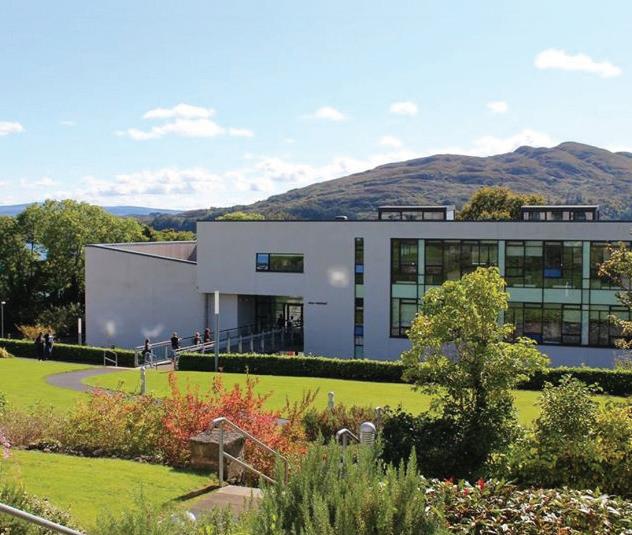


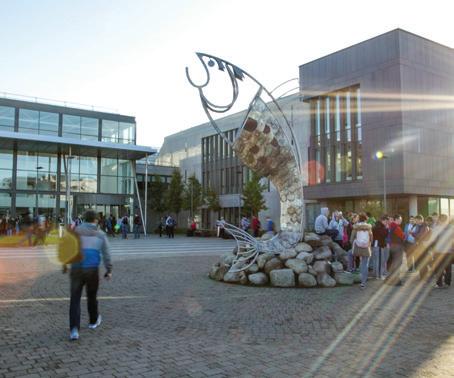

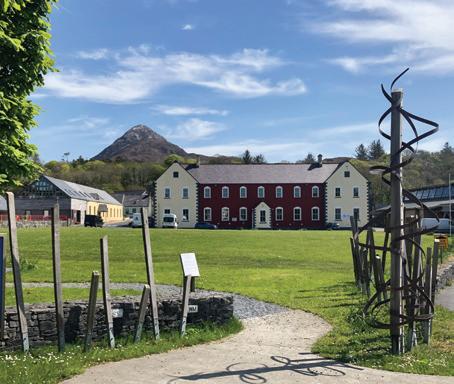
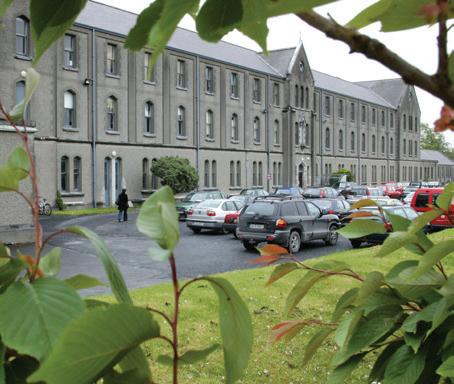

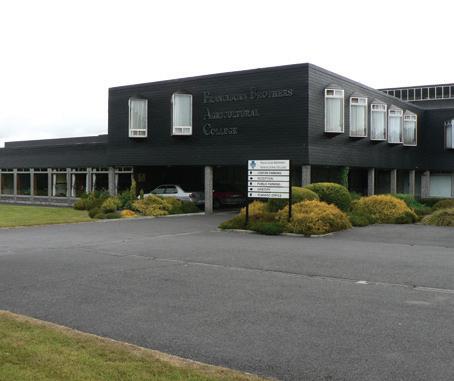

The inaugural ATU Strategic Plan will be approved in Quarter 1, 2024. Its development follows an extensive period of consultation, both within ATU and among external stakeholders. The vision, mission, and values (Figure 4) which underpin the Strategic Plan emphasise collaboration, innovation, and engagement. As ATU continues to grow and develop, we will support our region and ambition to be an outward facing university.
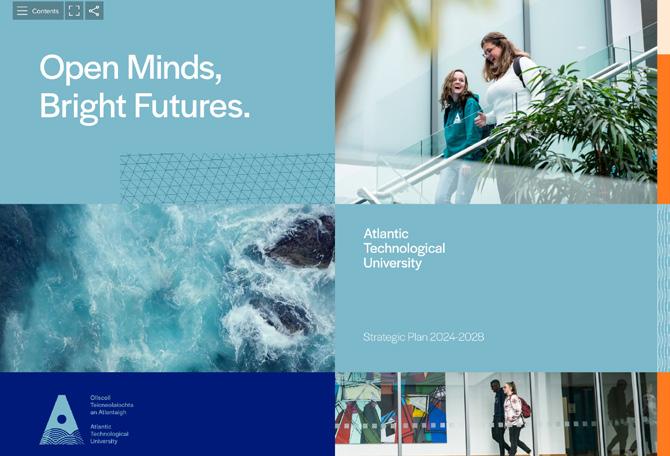

We will become an internationally renowned university that enhances the quality of life in our region and creates a sustainable future for all.

We enrich our region by delivering academic and research excellence working collaboratively with regional, national and international partners.
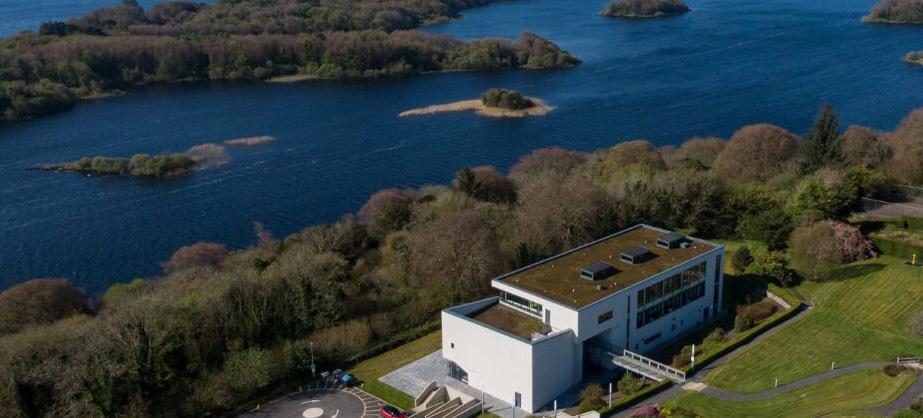
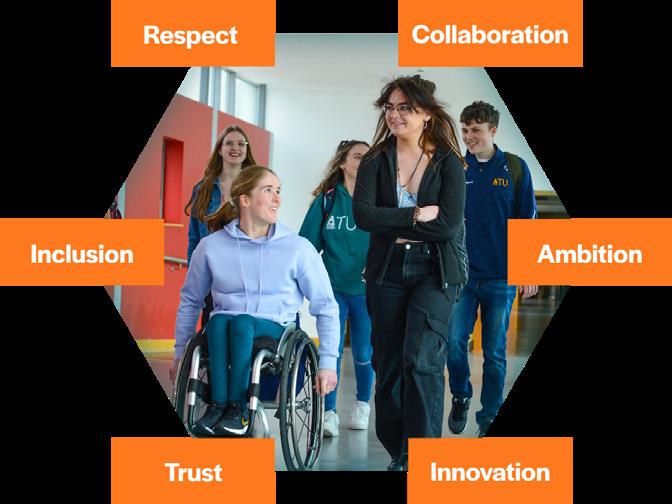
When formulating its Strategic Plan, ATU explored how the University can best serve the Northern and Western Region. Figure 5 illustrates a brief SWOT analysis of the Northern and Western Region. Included is a pathway for how ATU can meet its mandate under the Technological University Act 2018 to build on the region’s strengths, leverage its opportunities and address its threats and weaknesses. We will become part of the ecosystem which enables our region to continue to develop in a sustainable manner.
Figure 5: SWOT analysis of the Northern and Western Region (blue boxes) and Thematic Areas where ATU can support sustainable regional development (green boxes).
6: Strategic Plan Guiding Lights

The Strategic Plan sets out how ATU will achieve its objectives and is built around five Guiding Lights (Figure 6): Enabling Education, Engaged Research, Connected Ecosystem, Organisation Transformation and Sustainability for the Future. The Guiding Lights build on the University’s vision, mission and values and are the strategic themes that underpin the structure of the Strategic Plan and set our objectives for the future. Vision 2040 describes ATU in the year 2040, as it approaches the end of its second decade. For each of the five Guiding Lights, it projects a longerterm context for this strategic plan in setting our strategic objectives from 2024-2028


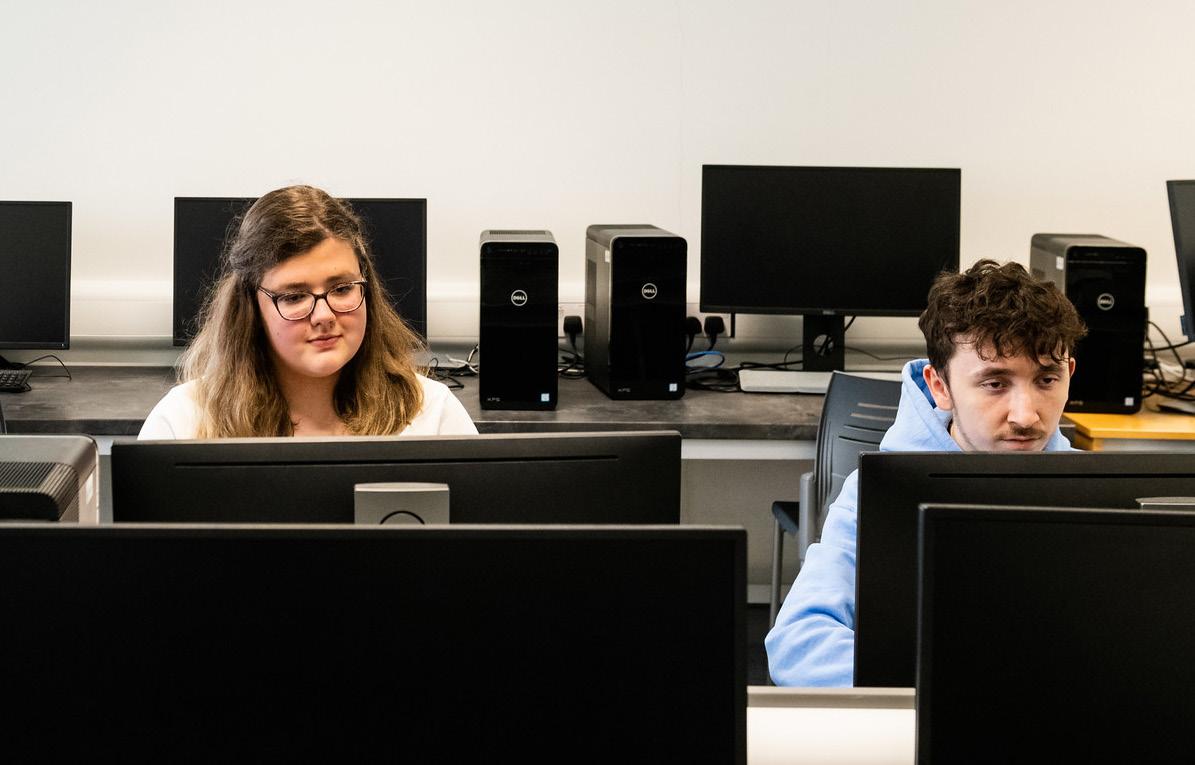
ATU was officially established on 1 April 2022. It combined what were previously Letterkenny Institute of Technology (LYIT), Galway-Mayo Institute of Technology (GMIT) and Institute of Technology Sligo (ITS). ATU is now the third largest multi-campus University in the Republic of Ireland, with nine campuses across Donegal, Galway, Mayo, and Sligo. Currently, students at ATU make up a population of over 25,000, studying 600+ academic programmes from pre-degree to doctoral level. The Technological Universities Act 2018 provides for an initial transfer of functions, programmes of education and training, quality assurance, and access, transfer, and progression procedures from the three merging institutions to the new Technological University. Under section 44 of the Technological Universities Act 2018, as amended by the Higher Education Authority Act 2022, St Angela’s College was incorporated into ATU on 1 November 2023.
ATU’s Governing Body was established on 1 April 2022 under the provisions of the Technological Universities Act 2018. On that day, the three merging Institutes of Technology were dissolved. The Governing Body is made up of members representing the University and community interests. Governing Body membership can be found HERE.
One of its first functions was to authorise the continuation of existing legacy quality assurance policies and procedures until they are replaced by new ATU policies and procedures. Two committees and three subcommittee of the Governing Body have been established as shown in Figure 7. The work of the Governing Body is supported by an integrated University Planning Team (UPT).

The President is the Chief Officer of the University, and the Registrar is Chief Academic Officer. The University is currently in a period of transition, as it moves from the governance and management structures in place in the three legacy institutions to a new structure for the University. During the transition phase, the President has established an interim University Planning Team (UPT) made up of senior members of the management team that is representative of the diversity of function, location, and gender at ATU. Members of UPT have University-wide briefs and work with the President in leading the new University and in developing unified structures to underpin it. Current membership of the UPT is listed HERE. To support the UPT in its work, four subcommittees have been established as illustrated in Figure 7.
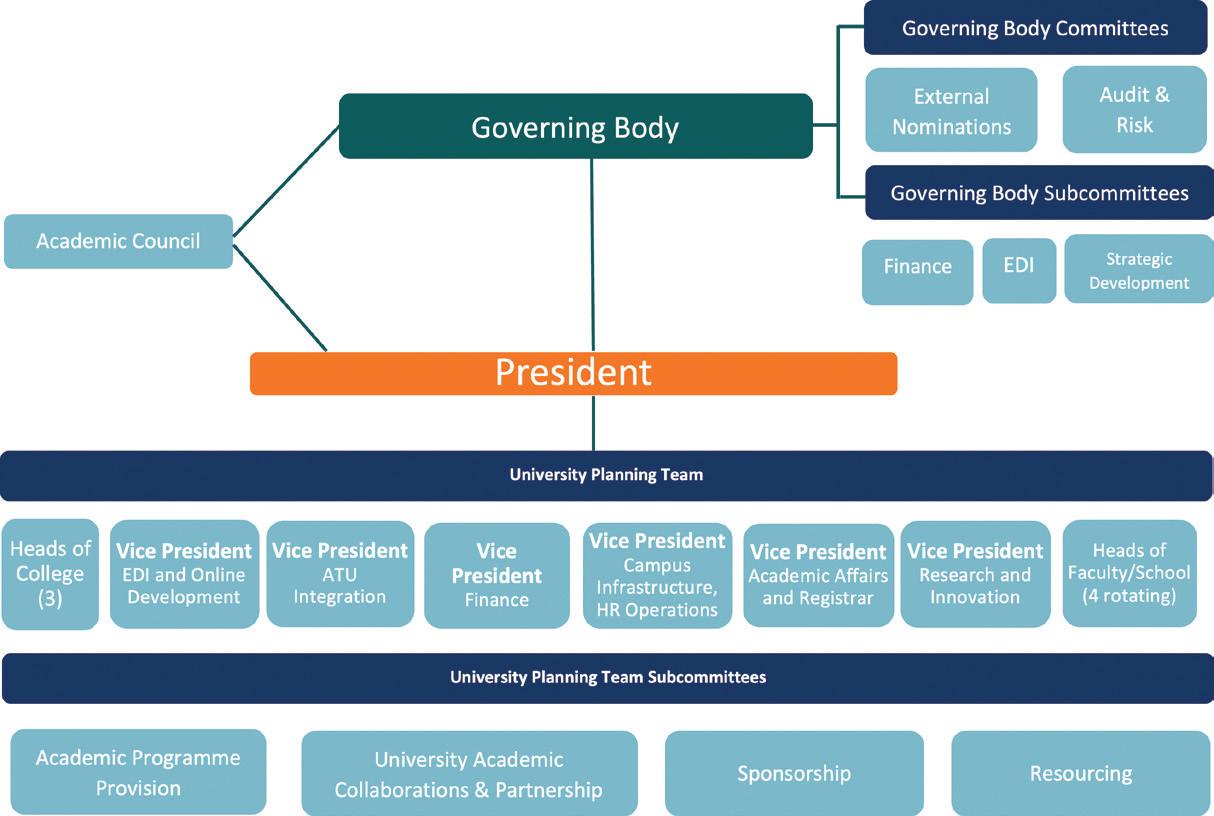
From an academic management perspective, four interim faculties have been established: Business, Engineering, Creative & Cultural Industries and Science & Health. These will remain in place during the transition phase until the establishment of a long-term organisational faculty structure. A rotating representative from each faculty is included on the University Planning team. The legacy academic unit structure in each of the colleges, made up of Schools and Departments with specific disciplinary focus also remains in place.
All academic matters are dealt with by the University’s Academic Council. Academic Council is a statutory academic body of the University, subject to Section 17 of the Technological Universities Act 2018 with a remit to control academic affairs: formulating and approving academic
policies, procedures and regulations concerning academic affairs in ATU. An interim Academic Council served from designation and until Quarter 4 2022 when elections to the new ATU Academic Council were completed. The first Academic Council of ATU was convened on 20 January 2023. At this meeting membership regulations and standing orders were approved.
As currently constituted, the membership of the Academic Council comprises sixty-nine members, thirty-six of whom are elected by and from the University’s academic community, with the President as Chairperson and the Vice President for Academic Affairs & Registrar as Secretary. The Academic Council General Purpose Committee has been established with authority delegated to it by Academic Council to make decisions in the absence of convening a full Academic Council meeting. Academic Council has six dedicated committees as shown below in Figure 8.

Within its first year, ATU commenced an organisation design process involving extensive stakeholder consultation and engaged the services of external consultants to advise and support the President and the University on Organisation Design. Following the completion of a discovery phase, which focused on a review of current structures within ATU and what challenges and opportunities they present now and for the future, working groups were established to develop and assess the design options for the Academic and Professional Management and Support Staff (PMSS) structures. The working group membership represented support services and academic areas across all levels and campuses of the University.
The Design Advisory Group comprised four experienced external experts (national and international) from the higher education sector to support the President in reviewing the
Figure 9: Proposed High-Level Organisation Structure
organisation structure options. The Academic Working Group and the Operations/PMSS Working Group reported to the Design Advisory Group in November 2023. All options were assessed against the agreed set of organisation design principles. The principles reflect the developing ATU Strategic Plan and were used to objectively assess the options for each of the high-level structures (Executive, Academic and PMSS).
It is expected that the high-level organisation structure model will be finalised in Quarter 1 2024. The design of ATU’s Executive Structure focused on two elements, the Academic structures which proposes four University wide Faculties which will include Schools and Departments. The second component is the Management and Administrative Structures which will comprise five Chief Officer roles.
The outcome from this design process is pointing towards a high-level organisation structure as depicted in Figure 9.


A robust Academic Quality Assurance and Enhancement Framework (AQAEF) is essential to fulfilling ATU’s mission. It ensures that ATU students will have the best possible learning experience and it provides assurance to all its stakeholders that the University adheres to the highest standards in academic excellence. Quality assurance requires that ATU is committed to making sure that quality and excellence are central to everything we do. Quality enhancement requires that we base our decisions on evidence and that we continually look for ways to improve what we are doing.

ATU operates according to the provisions set out:
· Technological Universities Act 2018
· Qualifications and Quality Assurance (Education and Training) Act 2012
· Qualifications and Quality Assurance (Education and Training) Amendment Act 2019
ATU complies with the following Quality Assurance and Enhancement guidelines:
· Standards and Guidelines for Quality Assurance in the European Higher Education Area (ESG, 2015)
· Quality and Qualifications Ireland (QQI) Core Statutory Quality Assurance Guidelines (2016)
· Sector Specific Statutory Quality Assurance Guidelines for Designated Awarding Bodies (DAB) (2016)
· QQI Topic Specific Quality Assurance Guidelines
As a Designated Awarding Body, ATU is responsible to define and operate its own quality assurance and enhancement policies and procedures. A Quality Assurance and Enhancement Team (QAET) was established in June 2022 under the Vice President for Quality Assurance & Registrar to develop the AQAEF.
The first policy approved by Academic Council in February 2023 established the principles under which the AQAEF will develop (Figure 10).
Academic Excellence
Figure 10. Principles underpinning the Academic Quality Assurance and Enhancement Framework
Devolved Quality Assurance
Principles
Currency and Relevance
Accessibility and Accountability
All Academic Quality Assurance and Enhancement (AQAE) policies are drafted and developed through a consultative process. Figure 11 presents an outline of the AQAE policy development review process.
Figure 11. Schematic diagram of the policy development and review process for the AQAEF.

Monitor, Review, Revise

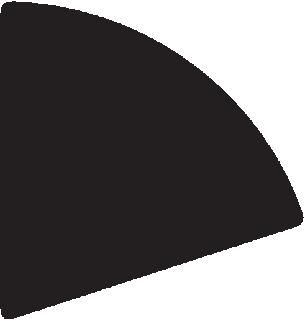
Implement, Communicate, Train Approve
Identify Need, Scope, Draft Document

Consult, Revise, Redraft, Finalise

As of 9 February 2024, 17 policies were approved by Academic Council. In addition, associated procedures have been approved with others in development. Details of all approved policies and procedures are available HERE
ATU is committed to engaging students in all aspects of Quality Assurance and Enhancement. Dialogue and feedback webinars with relevant stakeholder groups including with student representatives are central to the development of the AQAEF. Figure 12 depicts engagement with students for programme development and validation.
Academic Excellence
Figure 12: Principles underpinning Programme Development and Validation
Sustainability, Agility and Responsiveness
Programme Development and Validation
Studentcentred Experience and Values
Stakeholder Engagement
Two committees of the University Planning Team are involved in academic governance: Academic Programme Provision Committee and Academic Collaborations and Partnerships. The academic management of programmes is the responsibility of Programme Boards. Quality assurance responsibility is devolved to faculties as articulated in the AQAEF and includes programme monitoring, review, development, and validation. Academic Council, the Quality Office and the UPT provide oversight of these processes.
ATU implements a range of actions to ensure the quality of its programme delivery; the quality assurance of teaching, learning and assessment; and the student experience (Figure 13). These include the external examiner process, processes for ongoing monitoring and periodic reviews, participation in the national student survey (StudentSurvey.ie) and student participation in governance and management. Student representatives are active members of Governing Body, Academic Council, Programme Boards and Programme Validation.
• Academic Policies and Procedures
• Corporate Policies and Procedures, as appropriate
• Programmes
• Faculties / Schools
• Professional Services / Functional Areas
• Student Feedback
• External Experts
• External Examiners
• CINNTE / Institutional Review
• QQI – Biennial Dialogue Meeting
• QQI – Annual Quality Report (AQR)
A series of corporate policies and procedures have been developed and others are in development covering areas such as Finance, Health and Safety, Human Resources, Data Compliance.

ATU has commenced integration of its nine-campus infrastructure and development plans. Since inauguration, ATU has opened new buildings embarked on before the merger, secured funding for a number of important planned developments and has supported developments at different stages of planning and application. The Vice President for Finance and Corporate Services has responsibility for capital projects across ATU. All proposed developments must be approved by Governing Body.

Library and General Education Building
5,066 sqm Public Private Partnership - €30m – 100% Higher Education Authority (HEA) funded.
Final business case submitted to National Development Finance Agency (NDFA).
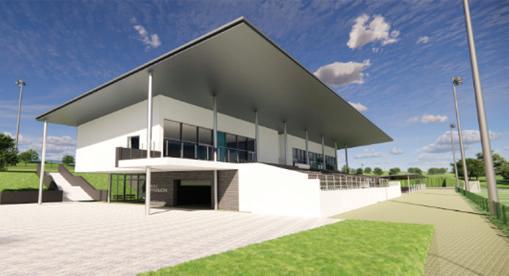
Letterkenny Regional Sports Activity Hub (LRSAH)€24m – 70% grant funding available
44 Acre sports campus.
Grant funded by Department of Tourism, Culture, Arts, Gaeltacht, Sport & Media under the Large-Scale Sport Infrastructure Fund (LSSIF).

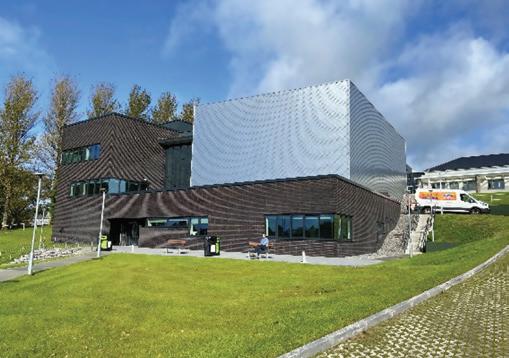
Refurbishment & Extension Block (K & L) - €12.6m83% HEA funded.
The completed building was handed over in August 2023.

Extension (E01) – 3,700 sqm - €19.2m - 64% ATU funded.
The completed building was handed over in November 2023.
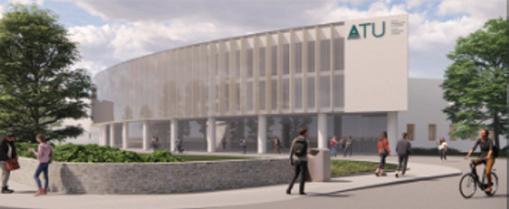

Six new Science Labs - €3m - 100% ATU funded.
TSSPF - 4,100 sqm - €30m - 83% HEA funded.
Supports national strategy on digitalization of education, sustainability and climate action and partly addresses space limitations.
Stage 2 business case submitted to HEA in August 2023.
Building – 5,000
Supports the demand for Science and Engineering programmes in response to our regional remit.
Building due to start in Q4 2024. Project due for completion and handover in August 2026.
Re-purposing existing space across the campus (former classrooms and Galway International Hotel School space).
Project completed and hand over in January 2024.

Other proposed developments include upgrades or new facilities as follows:
• ATU Letterkenny Campus: Staff Office Building; Apprenticeship Facilities; Gym and Studio Extensions; Veterinary Medicine Facility; Nursing Studies Expansion; Photonic and Semiconductor Region of Expertise.
• ATU Killybegs Campus: Ocean Innovation Centre; Apprenticeships Facilities.
• ATU St Angelas Campus: Health and Safety Works.
• ATU Sligo Campus: Expansion of Electrical Apprenticeship Workshop; Upgrade of Knocknarae Arena.
• ATU Galway City Campus: Student Building; Apprenticeship Expansion; Retrofitting of Heating Centre Units; Modular Prefabricated Buildings; Gym.
• ATU Galway Wellpark Campus: Upgrade to prior Church to accommodate larger capacity.
• ATU Mayo Campus: Expansion of Electrical Apprenticeship Workshop; Playing Field and Running Track; Further Education Building; Climbing Wall.
• ATU Letterfrack Campus: Expansion of Wood Manufacturing Apprenticeship Workshop.


“A well-rounded education remains at the core of ATU’s mission, and our strategic direction will be influenced by the strong tradition built up over decades and the constantly evolving world of learning and teaching.”
– ATU Strategic Plan 2024-2028
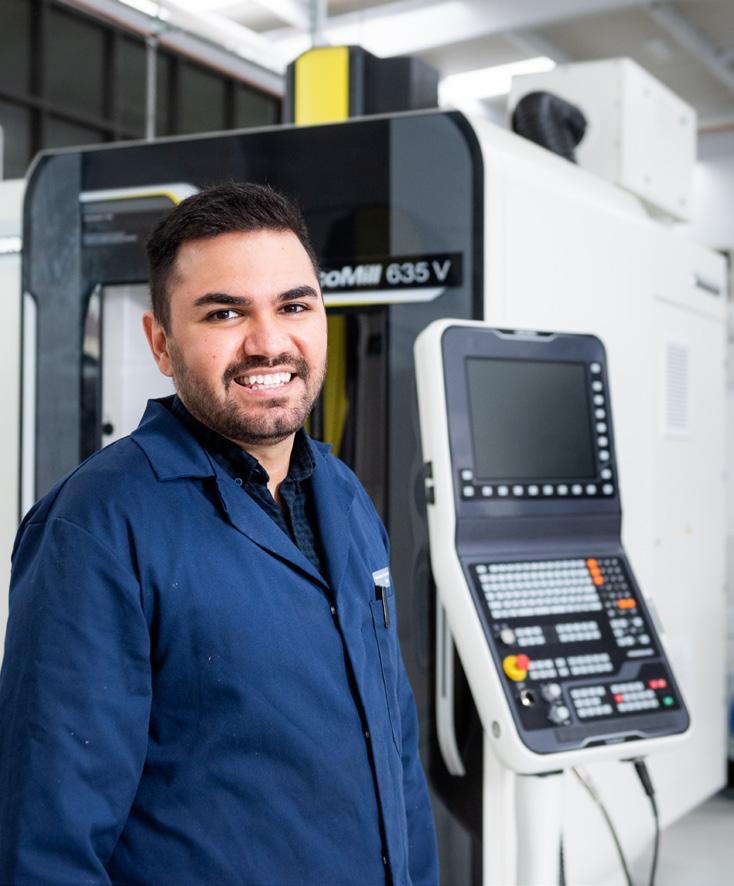
Enabling a well-rounded education underpins student success. We believe that student success is everybody’s business at ATU. ATU has appointed a Head of Student Success and the first ATU Student Success Strategy is expected in Quarter 2, 2024.
We have an ambitious set of objectives to promote student success that builds on and develops our programme provision; incorporates best practice in teaching, learning and assessment; facilitates the integration of physical and digital learning environments; offers a flexible curriculum and modes of delivery, and provides a wide range of supports for our diverse student body.
The breadth and depth of programme provision in ATU reflects the mandate expressed in the TU Act 2018 to provide programmes that reflect the needs of “business, enterprise [and] the professions” and enable graduates to “excel in their chosen careers” (Section (9) (1) (b) and (c) respectively).
In 2022/2023 ATU had students registered on 502 major award programmes from level 6 to 10 on the National Framework of Qualifications, leading to awards of Higher Certificate, Bachelor, Bachelor (Hons), Higher Diploma, Postgraduate Diploma, Master’s, and PhD. 51% of programmes are classified as Science, Technology, Engineering and Maths (STEM). In the same year, students were registered on 134 minor and special purpose awards with eight craft apprenticeships available (Figure 14).
502 Major Awards
134 Minor/Special Purpose Awards
Figure 14: Programme Provision 2022-2023
8 Craft Apprenticeships
ATU’s programmes are characterised by flexibility with multiple entry and exit points (Figure 15). Typically, degree programmes will have entry points to level 7 (three year) ordinary degree and level 8 (four year) honours degree pathways, with exit awards of Higher Certificates following successful completion of the first two years. Similarly, Master’s programmes typically embed Postgraduate Diplomas and Postgraduate Certificates. Flexibility is further provided through mode of delivery, with most postgraduate programmes targeted at continuing professional development offering online, blended or block delivery options.
The University actively encourages applications on the basis of Recognition of Prior Learning (RPL). The ATU RPL policy is available HERE
Continuing Professional Development (CPD) is provided through 134 Special Purpose/Minor Awards whilst progression is facilitated through 158 programmes at postgraduate level including taught, structured and research masters, as well as PhD and a newly approved Doctorate of Business Administration (Figure 16).
ATU supports labour activation programmes such as the Springboard+ Programme. Springboard+ began in 2011 as part of the Government’s Jobs Initiative. It complements the core State-funded education and training system and provides free and heavily subsidised upskilling and reskilling higher education opportunities in areas of identified skills need. In 2022/2023 ATU offered 54 programmes of study across its campuses in Science, Technology and Engineering, Business and Social Science disciplines under the 2022 Springboard+ Programme.
Making links and collaborating with a range of partners across industry, the University sector, research centres, and international bodies has enabled ATU to provide collaborative provision in a number of key areas. The AQR, April 2022-December 2022, outlines our collaborative provision in more detail HERE
ATU engage with Professional Statutory and Regulatory Bodies (PSRB) to deliver accredited education and training. Over 30 such bodies recognise and approve ATU programmes in relevant areas. This highlights the significance of professional body recognition and accreditation of ATU programmes and the ensuing benefits for graduates (Figure 17).


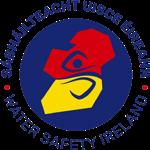




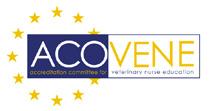


A commitment to excellence in learning, teaching, and assessment [LTA] is integral to the purpose, mission, and strategy of ATU. This draws from a long history of innovative and responsive approaches to learning across the legacy institutions. These include, but are not limited to, problem and challenge-based approaches; research-informed learning; peer mentoring; work-based learning; flexible and technologyenhanced methodologies; industry placement and studentled projects. Such approaches reflect the requirements of a sophisticated workforce, a knowledge-based economy, and a diverse society.
A number of ATU staff have achieved AdvanceHE Fellowships and Senior Fellowships, facilitated by ATU’s ENGAGE Fellowship Scheme, which offers a structured and supportive process for staff to attain HEA Fellowships, in line with the HEA Professional Standards Framework 2023.
The TLC oversees the allocation of funding from the National Forum for Teaching & Learning. Many staff led enhancement projects were supported in 2023 which align with the National Teaching & Learning forums stated priorities. These include projects in Education for sustainability; Academic Integrity; and Digital Transformation in Teaching and Learning. The first ATU Teaching and Learning Strategy will be launched in Quarter 2 2024.
In the ever-evolving landscape of higher education, the establishment in September 2022 of an ATU Teaching & Learning Centre (TLC) is a fundamental development for the University. Recognising the mutual relationship between effective teaching and successful student learning, the Centre’s key role is to foster collaboration and innovation among all ATU academic staff. The goal of the Centre is to create a nurturing environment for all staff involved in teaching and learning roles to develop, reflect and articulate effective practices informed by agreed LTA principles, which reflect National and European education fora’s position in relation to the centrality of Teaching and Learning in the University. By providing a cohesive platform for professional development, resource sharing, and pedagogical advancements, the Centre is instrumental in enhancing the overall quality of education.
ATU offers several accredited programmes in the field of Teaching and Learning including Postgraduate Certificate, Postgraduate Diploma and Master of Arts (MA) programmes in Teaching and Learning; a Postgraduate Certificate in Teaching, Learning and Assessment; and a Postgraduate Certificate and MA in Universal Design for Learning. ATU also offers an MA programme in Teaching and Learning for educators in primary, secondary and third level sectors. In addition, the TLC has developed a suite of resources for staff including resources on academic integrity, assessment, education for sustainability, academic staff induction and student engagement. The TLC provides staff with opportunities for continuing professional development via regular webinars, training sessions and support clinics.
To facilitate accessibility and inclusion, a Universal Design for Learning (UDL) approach to teaching, learning and assessment underpins the work of the TLC. A UDL Centre of Excellence has been established. The Centre functions as a central hub for UDL research, professional development, assistive technologies, inclusivity advocacy, and collaborations. It is contributing to ATU’s leadership in the ALTITUDE National Charter for Universal Design in Tertiary Education. In 2022 ATU were the inaugural recipients of the John Kelly UDL in Collaboration Award.
With the support of SATLE (Strategic Alignment for Teaching & Learning Enhancement) funding, ATU has appointed a Senior Lecturer in Academic Integrity. The focus of this funding is the 2nd National Strategy on Education for Sustainable Development to 2030. This post is aligned with the pillar of the UNECCO ESD Framework to 2030; Best Practice in Upholding and Cultivating Academic Integrity. The first ATU Academic Integrity policy was approved in December 2023 (see HERE).
The TLC has developed an online Academic Integrity Hub that is available to all academic staff and students at the University. It facilitates good assessment that embeds good academic integrity practices. It contains multiple self-paced resources that academic staff can engage with in their own time.
Aligning with the National Forum’s priority theme of digital transformation, ATU has taken a lead role in digital education. The Innovative Opportunities Transforming Education (iNOTE) Project provided opportunities to transform the higher education experience in ATU through building digital capabilities and pedagogic expertise, to design, deliver and support flexible, distance and e-learning programmes. This included the launch of a knowledge platform, DigitalEd.ie, providing university staff access to digital learning pathways and a suite of resources on digital education. Another ATU initiative, CPDLearnOnline.ie, provides access to a suite of self-paced courses to staff, focusing on digital education and pedagogy.
Our commitment to the development of innovative learning models which are both agile and responsive is the focus of our Higher Ed 4.0 project Transformative Higher Education | Higher Ed 4.0 . We received €12.7m funding for this project for a 4-year period 2021-2024.
ATU is part of the N-TUTORR Project (funded by the National Resilience and Recovery Plan/ NextGenerationEU). €40m was allocated nationally to the project with €7m allocated to ATU. The N-TUTORR programme (see HERE) is designed to transform learning, teaching, and assessment by focussing on the student experience and developing the capabilities of all staff to address a sustainable pedagogical and learning environment with a particular and critical focus on Academic Integrity, Digital Transformation, Education for Sustainability, Employability, Equality, Diversity and Inclusion, and Universal Design for Learning (Figure 19)
ATU Library is a multi-campus library service across nine sites providing an inclusive and critical service for all ATU students and staff. All libraries provide a welcoming learning environment with access to an extensive collection of print and electronic resources to support the teaching, learning and research needs of its students and staff (Figure 20).
The library provides physical spaces for study and collaboration, face to face support as well as virtual services to accommodate onsite and flexible online teaching and learning. Library staff partner with academic staff and students in the learning journey to facilitate the delivery of academic excellence.

ATU has a central aim to provide an environment which supports every student to reach their potential personally, professionally, and academically. The ATU Student Services function has been organised to ensure equity of access, efficiencies, and effectiveness across the University. We provide a comprehensive range of student services and supports for students throughout their studies at the University. An illustration of Student Services and Supports is presented in Figure 21.
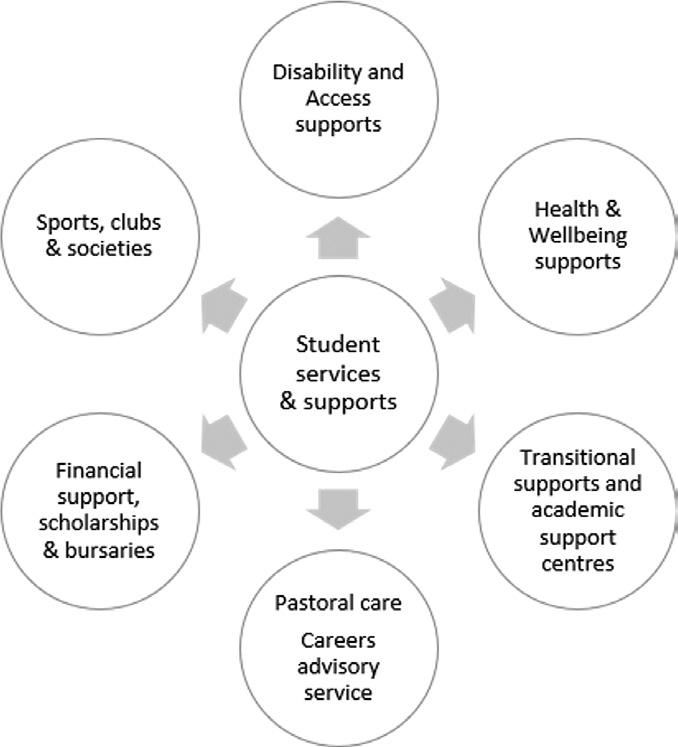
The Access Office provides a range of supports and services to mature students and students from disadvantaged socioeconomic backgrounds. These supports and services are designed to ensure students have equality of access, participation, and outcome. Underpinning the work of the Access Office is the recognition that certain categories of students experience barriers, and all services and supports provided are designed to address these barriers through the assessment of individual student needs, and the provision of appropriate academic, technological (e.g. laptop loans), and financial support. ATU is a member of both the HEAR and DARE schemes. 107 students were enrolled on our access programmes in 2022/2023.
The Disability Support Service supports students with physical and sensory disabilities, students with significant ongoing illness, students with mental health difficulties, students on the autism spectrum and students with specific learning difficulties. It provides a range of supports and services for students attending full-time and part-time courses. 1,725 students (or 7.2% of the ATU student population) qualified for support from the Fund for Students with Disabilities (FSD) and were registered with the Disability Support Service while an additional 150 students were in receipt of minor support. Students can register for Reasonable Accommodations.
ATU have adapted the Disability and Learning Support staffing profile and service to meet the needs of their increasingly neuro diverse student population. There are dedicated staff on each campus to support students registered with the disability service. New students are given the opportunity to have their preferred learning style assessed and, where indicated by the assessment, are provided with focused supports.
The University’s commitment to implementing a whole campus approach to autism accessibility, resulted in AsIAm recognising ATU Sligo as the first Autism friendly campus of a Technological University. ATU is currently working towards this designation for all our campuses.
Students of all abilities can benefit from the academic writing supports provided by the University. These include getting started with assignments, effective notetaking, report writing, avoiding plagiarism, successful writing in exams and the writing process – generating ideas, drafting, revising, and editing. Students can access these facilities on a one-to-one basis or as a small group.
The innovative Maths support centres offer the extra support that many students need. Services include consultations, tutorials, computer-based tutorials, and access to relevant text materials. Students can access these facilities on a oneto-one basis, as a small group or online.
Dedicated learning-support tutors help students who have specific learning difficulties. Students have access to the latest assistive technology and can engage with a learning support tutor on a one-to-one or group basis. Reasonable accommodation at exams and liaising with relevant staff are other ways that learning-support tutors can help.
At ATU, we recognise the achievements of our students in sporting and cultural fields. ATU scholarships reward excellence and encourage outstanding performance in a variety of areas.
A professional counselling service is available free-of-charge for all students. It provides support to students with any area of concern that might arise, be that academic, personal, financial, or mental health concerns.
The health service teams across ATU provide free medical care and health promotion information to students. The teams, which are made up of doctors and nurses, help with the diagnosis and treatment of health problems, along with providing services such as issuing prescriptions.
The chaplaincy service supports students in their personal and spiritual growth during their time at ATU. The chaplaincy service is available to students of all faiths and none. The team helps to build a sense of community and care for the wellbeing of all.
ATU students are provided with free software to download to their own devices and cloud data storage allowing them to study from anywhere in the world at any time. Students can also access a range of free modern technologies and free high-speed Wi-Fi on our campuses.
ATU’s comprehensive induction and welcome programmes support students in making the transition from second to third level education. During induction students receive their timetables, meet their classmates and lecturers, learn about supports and services, get their questions answered and have guided campus tours. A sample induction programme is available HERE
The Careers Service supports students in the transition from education to the workplace. It offers advice to students on career options and postgraduate studies and assists them with CV preparation and interview skills. The Careers Service has well established links with local, national, and international employers. Throughout the year the service organises a range of workshops, careers fairs and employer talks.
The International Office supports the international student body in tandem with the mainstream services. The International Office aims to provide the international student body with both a cultural and academic experience and supports them during their time studying at ATU.
The Student HUB is an internal communications platform providing students with a wide variety of information and resources and is accessible by students across the University. In advance of an integrated ATU Student Hub being developed, the ATU Student Hub links to the legacy student information sites of the three legacy Institutions.
ATU Students’ Unions (SUs) play a crucial role in fostering a vibrant and inclusive University experience for the student body. There are four SUs across ATU. Figure 22 illustrates the SU Structure in ATU Donegal, Sligo and Galway (see section 11 for ATU St Angelas SU information). ATU values the student voice and facilitates student participation at all levels across the University. Three of the SU Presidents are members of Governing Body and they, or their nominees, are members of Academic Council. SU Class representatives are elected to Programme Boards, and other key fora across the University.
Full Time Officers 13 Part Time Officers 732 Class Representatives
The SUs are also central to the successful running of the University’s clubs and societies. Clubs and societies (Figure 23) play a significant part in the overall ATU student experience by creating a sense of community, encouraging personal development, providing opportunities for social interaction, skill development, physical activity, and leadership development. Student Societies range from interest-based societies such as coding and drama, to societies with a cultural & diversity focus which explore various cultures, backgrounds, and identities. Students are encouraged to get involved and the SU is active in engaging students in extracurricular activities.


Our students participate in the national survey of student engagement, StudentSurvey.ie, to provide feedback on their experience of ATU. Student responses to individual questions are grouped together to calculate ten high level index scores. In 2023, ATU exceeded the average score of all Technological Higher Education Institutions in the majority of indices (6 out of 10) and performed better than the national average score in Quality of Interactions and Effective Teaching Practice (Figure 24).
ATU National Performance: Indicator Scores
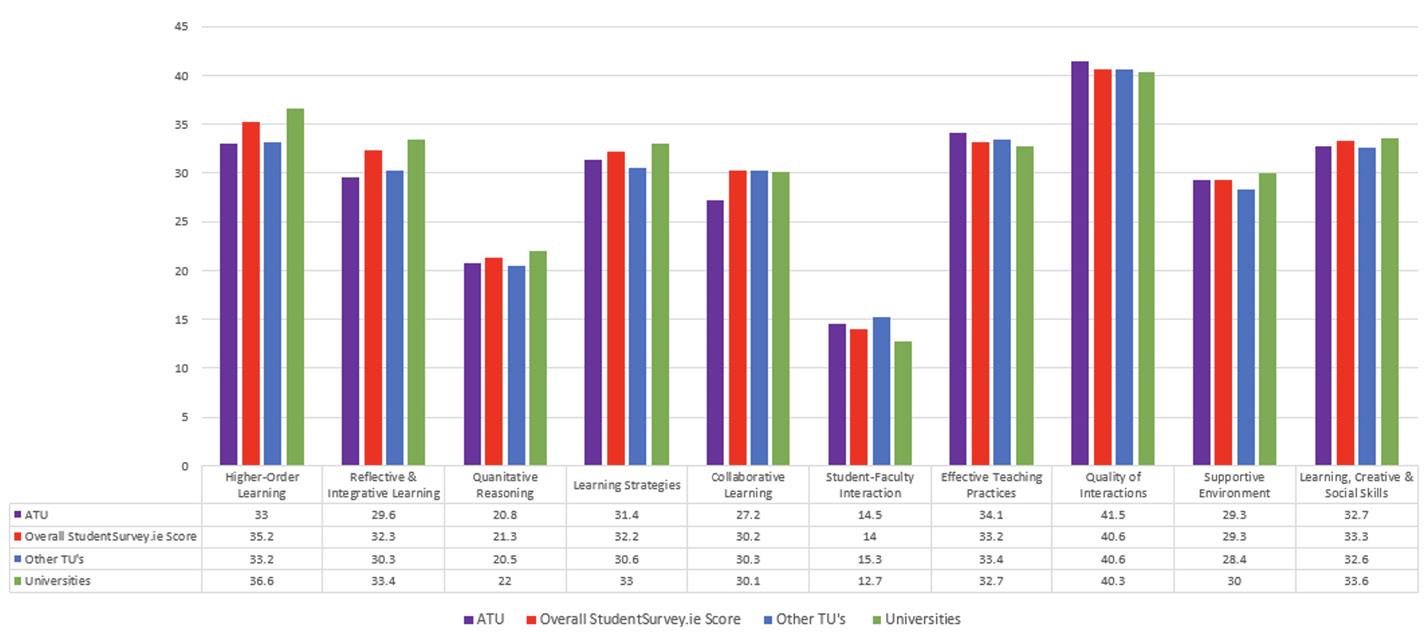
Figure 25 demonstrates that 81% of survey respondents rated their entire educational experience of ATU as either “Good” or “Excellent”.
National Picture: UG & PGT Overall Student Education Experience

25: Overall Student Experience

“We
will build on our existing research strengths, informed by regional and national priorities.”
– ATU Strategic Plan 2024-2028
ATU recognises that research is integral to the remit of the University and is committed to supporting a research environment that is underpinned by a culture of integrity and scholarship. Research in ATU encompasses activities that support original and innovative work in a variety of disciplines. Research activity of staff and students at ATU is coordinated by the office of the Vice President for Research and Innovation.
ATU provides a variety of postgraduate taught and research programmes across the University. We are committed to supporting graduate research students through the provision of expert supervision, academic formation, development of transferable skills, and access to current cutting edge research opportunities. The Level 9 Graduate Education in Research Practice (Generic and Transferable Skills) programme allows a flexible learning approach to provide Postgraduate Students with the generic and transferable skills required to conduct research.
Quality Assurance of postgraduate research is a collective responsibility with oversight provided by the Vice President for Academic Affairs & Registrar, the Research & Innovation Committee of Academic Council, and the Postgraduate Research Advisory Committee.
A Research Degree Policy covering all Masters by Research and Doctoral Degree programmes was approved by Academic Council in October 2023, available HERE. The Policy provides for the quality assurance of admission, supervision, confirmation, transfer, and examination of students registered for research degrees at ATU. The next stage is the development of a series of procedural documents and forms related to the management and examination of research degrees to support the implementation of quality assurance and best practice for our research activities and programmes. This is expected to be completed during academic year 2023 - 2024.
Postgraduate student data for 2022-2023 is presented in Figures 26 and 27.

In 2022 ATU initiated its cohort-based Postgraduate Researcher Training Programme (PRTP). Thirty (30) PhD students were recruited to two programmes: Modelling and Computation for Health and Society (MOCHAS) and Operations and Supply Chain Research (OSCAR).
PRTPs are designed to attract and retain top-tier research talent/leadership and to conduct applied research with direct relevance to enterprise needs. The implementation of PRTPs is informed by international and national developments in relation to doctoral training centres, industrial and work-based
learning, transferable research skills, and expanding conceptions of the modalities for postgraduate research study. Training programmes will align with the areas of sectoral strength and/or emerging opportunity identified in the Smart Specialisation Strategy for Innovation in the Northern and Western region: See HERE.
In October 2023, ATU launched a unique practice-based professional doctorate, Doctorate in Business Administration (DBA) offering the highest level of management education. Offered by the Faculty of Business, this new flexible four-year DBA, leverages a 20-year history in the provision of Executive Education.
Post merger, 10 Research Centres across ATU remain in place. These centres are focused on developing sectoral strengths and seeking out areas of opportunity (Figure 28). During the process of integration, it is expected that there will be a review of our research centres and programmes as part of the Research and Innovation Strategy. In addition, ATU has an established Contract Research Unit (see HERE
Strengths and Emerging Areas of Opportunity:
ATU and its legacy institutions achieved inter-annual growth in research expenditure averaging 130% p/a (2019-2022, Figure 29). Modest predictions of 10% inter-annual growth from 2022-2029 will see total 2029 expenditures >€33m p/a, and that derived from industry >€1.25m p/a. Application of this conservative 10% inter-annual growth to ATU’s e-enterprise engagements will see the total number of collaborations, innovation voucher and consultancy agreements with industry grow from the 2022 baseline of 147 to 237 in 2027, and 286 in 2029.
Research Expenditure (less block grant Research Expenditure derived from Industry
Figure 29: Growth 2019-2022 and future Projections for Research Expenditure
As a nascent Technological University, ATU has recently secured significant funding (over €19m) under TU Rise. TU Rise is co-financed by the Government of Ireland and the European Union Southern, Eastern & Midland Regional Programme 2021-27 and the Northern & Western Regional Programme 2021-27. It serves to drive research and innovation capacity building to address the significant challenges of the region as outlined in both the North-West Regional Enterprise Plan and Western Regional Enterprise Plan. Our vision is to achieve regional prosperity and cohesion by increasing innovation and enterprise capacity and establishing ATU as a preferred Research and Innovation (R&I) leader and partner. RISE at ATU is a critical component in achieving this vision.
The TU RISE ATU programme is designed to deliver a regional research and innovation ecosystem (Figure 30).
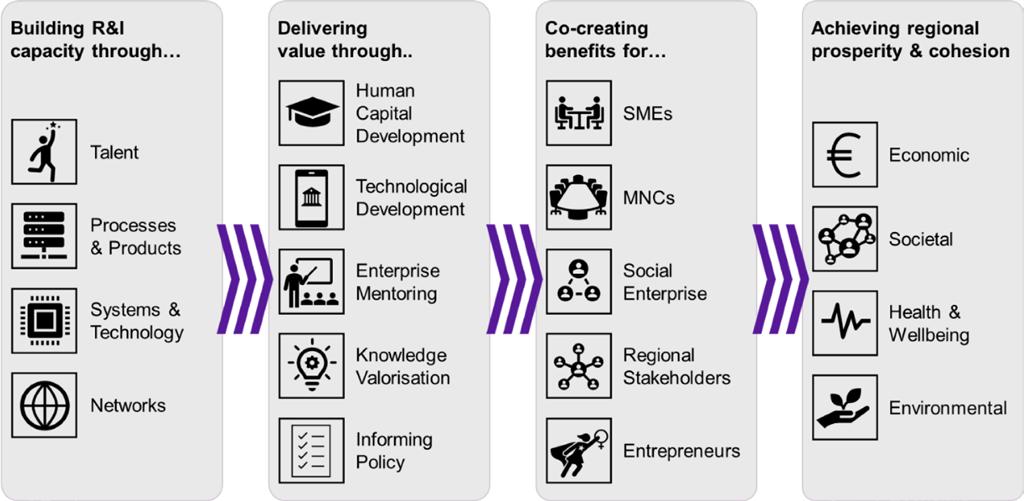
Figure 30: Outline Schematic of the Capacity, Delivery, Benefits and Outcomes of TU RISE at ATU

“ATU is in a unique position to serve the region and contribute to its development as it faces significant challenges.”
– ATU Strategic Plan 2024-2028
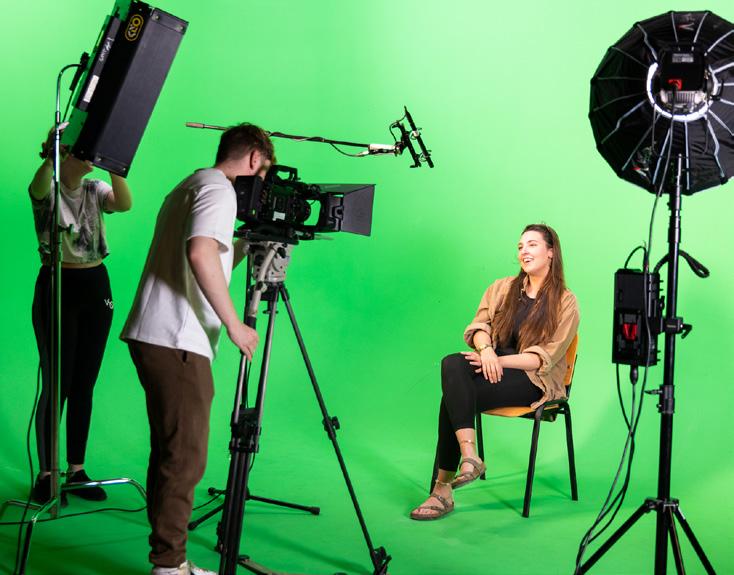
ATU is in a unique position to serve our region and contribute to its developments as the region faces significant challenges. Building on the 50+ years of its legacy institutions, ATU is continuing a distinguished tradition of engagement with an extensive range of external stakeholders including the Public Sector, Private Sector Employers, and Industry, the Community and Voluntary Sector, Education and Training Providers and Alumni (Figure 31).
Figure 31:
Examples of Current Partnerships and Collaborations
ATU is currently engaged with the University Industry Innovation Network (UIIN) to reimagine the totality of our external engagement activities by developing a unique ATU External Engagement Strategy to embed and increase our impact across the Northern and Western Region.
In 2023, ATU established a Collaborations and Partnerships Committee to review existing and proposed academic collaborations and partnerships with the University in terms of strategic fit and resources. These include collaborative, joint, and transnational provision, international collaborations and agreements, professional, statutory and regulatory bodies, higher and further education collaborations, community collaborations and related areas. Chaired by one of the Heads of College, the committee liaises with relevant Heads of Functions and makes final recommendations to the President/UPT. Work is ongoing to develop an existing and post-merger general database of all agreements. Since its inception, 31 MoU’s/MoA’s have been approved.
ATU is an outward facing and forward-looking University that has the expressed intention to be an internationally oriented, globally competitive Higher Education Institution. We are actively embedding global perspectives across our University to enhance the learning environment and to support graduates to become global citizens. The International Offices and Vice President for Research and External Affairs play a key role in managing, developing, and promoting ATU as a Global University.
The ATU Global brand was formally launched by ATU President Dr Orla Flynn at the European Association for International Education (EAIE) Conference in Rotterdam in September 2023 and ATU Global agreed and adopted an interim Organisation Structure.
ATU Global has adopted the following key objectives:
During 2022/2023, ATU Global represented ATU in Canada, the United States of America, India, Africa and in the 10 countries that make up ASEAN, Brunei, Cambodia, Indonesia, Laos, Malaysia, Myanmar, the Philippines, Singapore, Thailand, and Vietnam as well as several priority promotional visits to European countries. ATU Global also hosted numerous VIP visits including Ambassadors and various delegations from Canada, China, India, France, Spain, the United States of America, and South Africa. ATU Global achieved the first ATU-wide Erasmus Charter and won the first ATU-wide Erasmus+ KA 131 Grant worth €568,000.
A new QQI International Education Mark will be open for applications in early 2024 and ATU has already signalled its intention to be among the first TUs to apply. This will be a significant opportunity to benchmark against emerging best practice in international education and establish revised standards of service delivery to all ATU international students.
ATU has a long-standing relationship with the European Association of Universities of Applied Sciences (EURASHE) and is a member of the European University Association (EUA), UIIN (the University Industry Innovation Network) and the EAIE (the European Association for International Education). We have recently become a member of Universities Ireland and are a founding member of the World Technological University Network (WTUN).
In 2022/2023 ATU welcomed a total 1398 international students from across the globe.
Relevant data on ATU’s International Students is captured in the following figures.


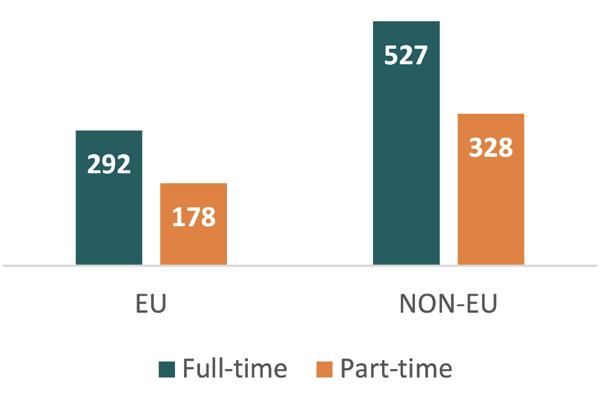
In 2022/2023 ATU hosted 73 incoming Erasmus Students from 10 European countries and three Non-EU Exchange Students from Brazil and Taiwan (Figure 37). The University also supported 22 outgoing Erasmus Students on Study and Traineeship exchanges, one on a Study Exchange to Germany and six on Study Exchanges to Northern Ireland with 15 outgoing students undertaking traineeships in Northern Ireland.
Other Exchange Students


ATU is committed to supporting and promoting engagement with the United States through the Fulbright programme in collaboration with the Irish Fulbright Commission. A Fulbright ambassador has been appointed to support students, scholars and professionals who wish to apply for a Fulbright scholarship. Across ATU campuses there are several Fulbright scholars associated with ATU and we continue to host a number of US Fulbright Scholars and students across the nine campuses. Developing relationships and sharing understandings with colleagues in the US is a strategic ambition for ATU.

ATU has appointed an Alumni Officer, to begin the process of building an Alumni network leveraging the alumni networks of ATU’s founding institutions. The Alumni Network is a potential network of over 100,000 people living and working across the globe. Since the ATU Alumni Office was established in February 2023, the ATU Alumni Network has approximately 5,000 members.
The ATU Alumni Office helps connect alumni to each other and to the University through lifelong learning and networking opportunities as well as participation in a range of volunteering programmes such as the ATU Alumni Mentorship Programme, and any other alumni related activity and events under the four ATU alumni pillars (Figure 38).

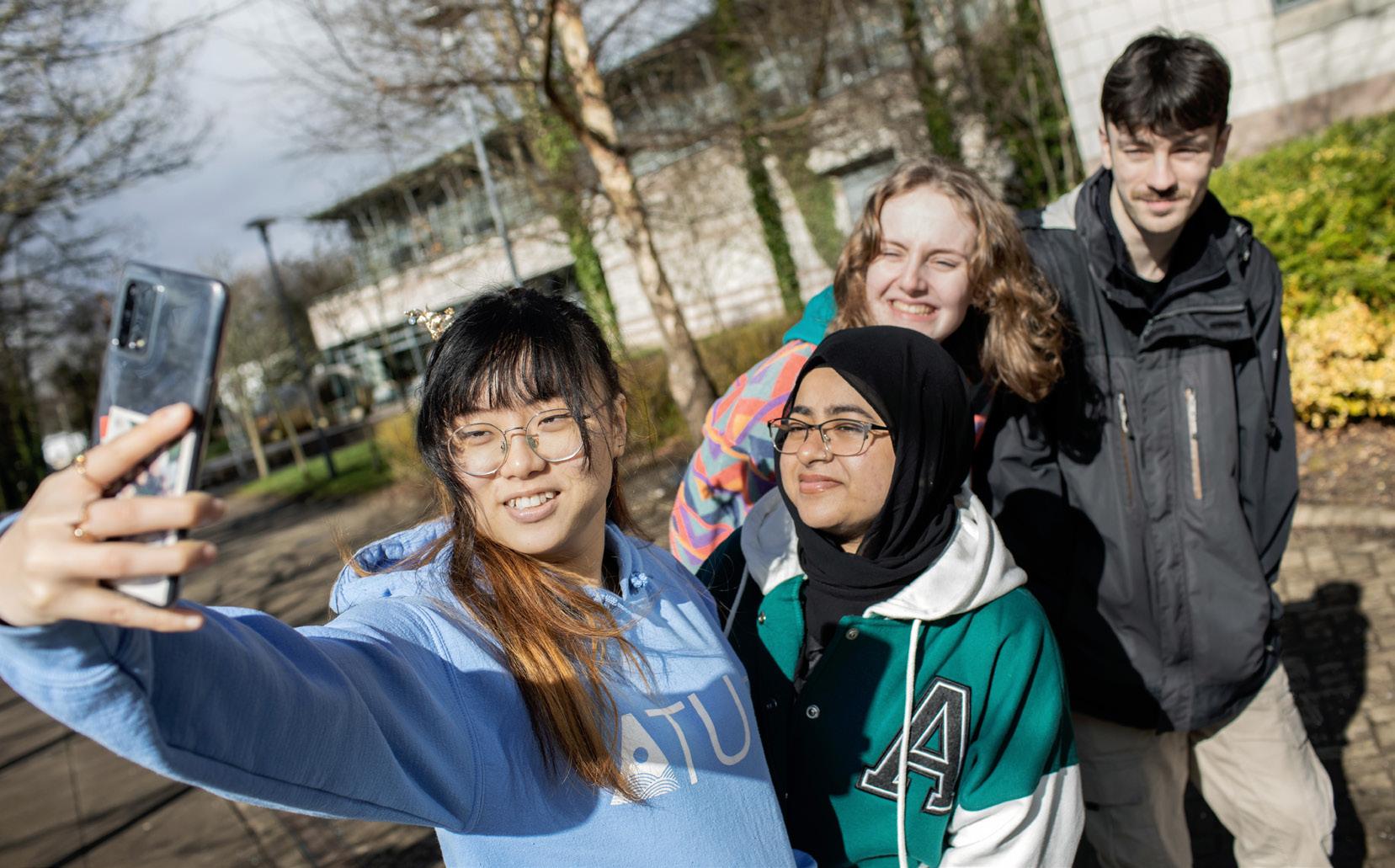
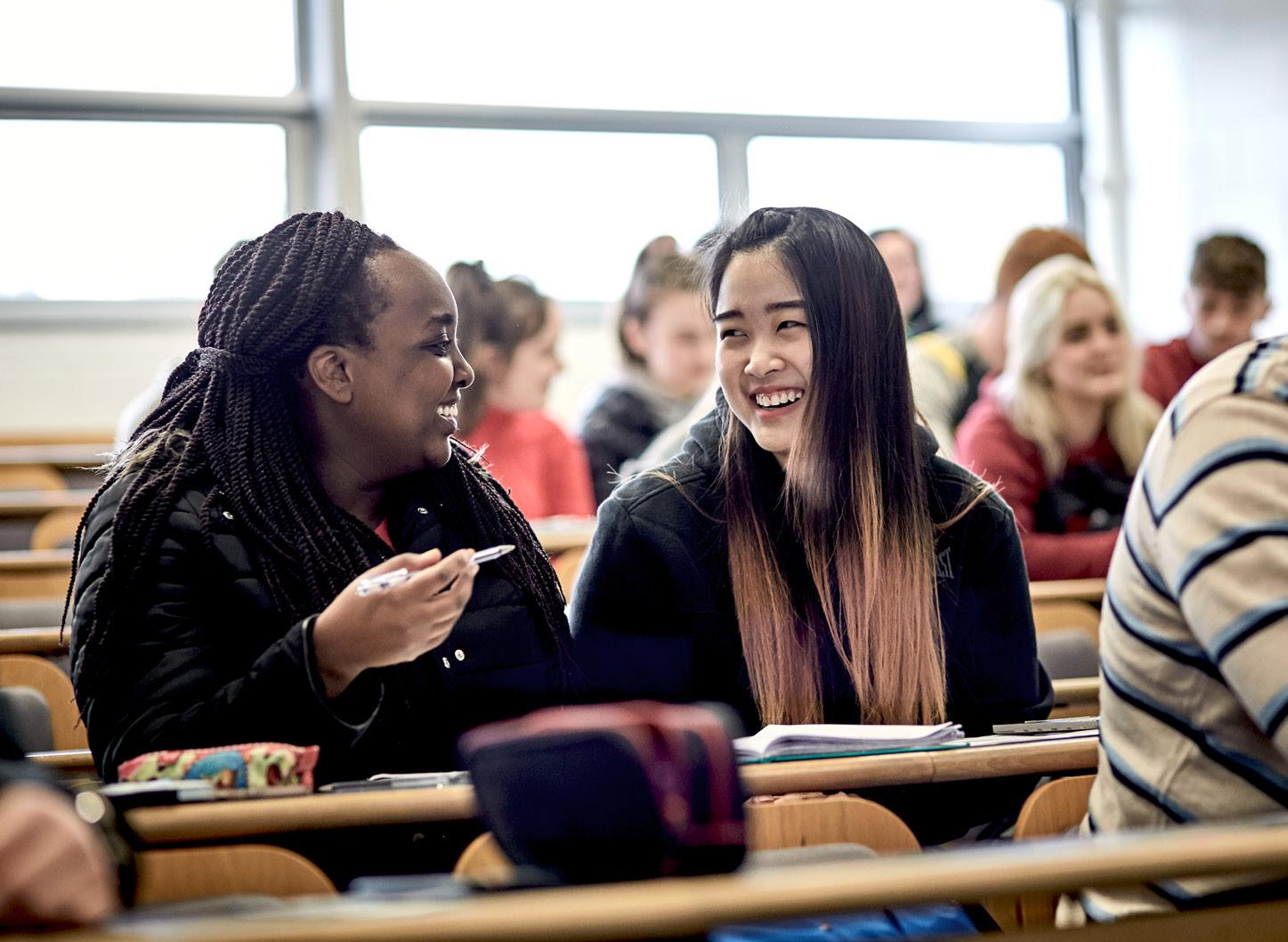
“What will Success look like: ‘working as one’ culturally embedded across the University.”
– ATU Strategic Plan 2024-2028
ATU recognises the complexities and challenges in creating a community comprising staff and students from four distinctive legacy institutions. We continue to progress the development of one diverse community through fully engaging our staff and students across a range of fora.

Following the incorporation of ATU St Angelas, ATU has the third highest level of student enrolments in the Republic of Ireland.2 This reflects the strength of our programme provision and our ongoing commitment to our region. The student profile data presented below is based on 2022/2023 enrolments prior to the incorporation of ATU St Angelas (Figure 39).3

Figure 39: Student Enrolments ATU
ATU admits students on a full-time, part-time, and online basis (Figure 40) illustrating our capacity to continue to support a diverse student population and meet the needs of complex programme delivery.
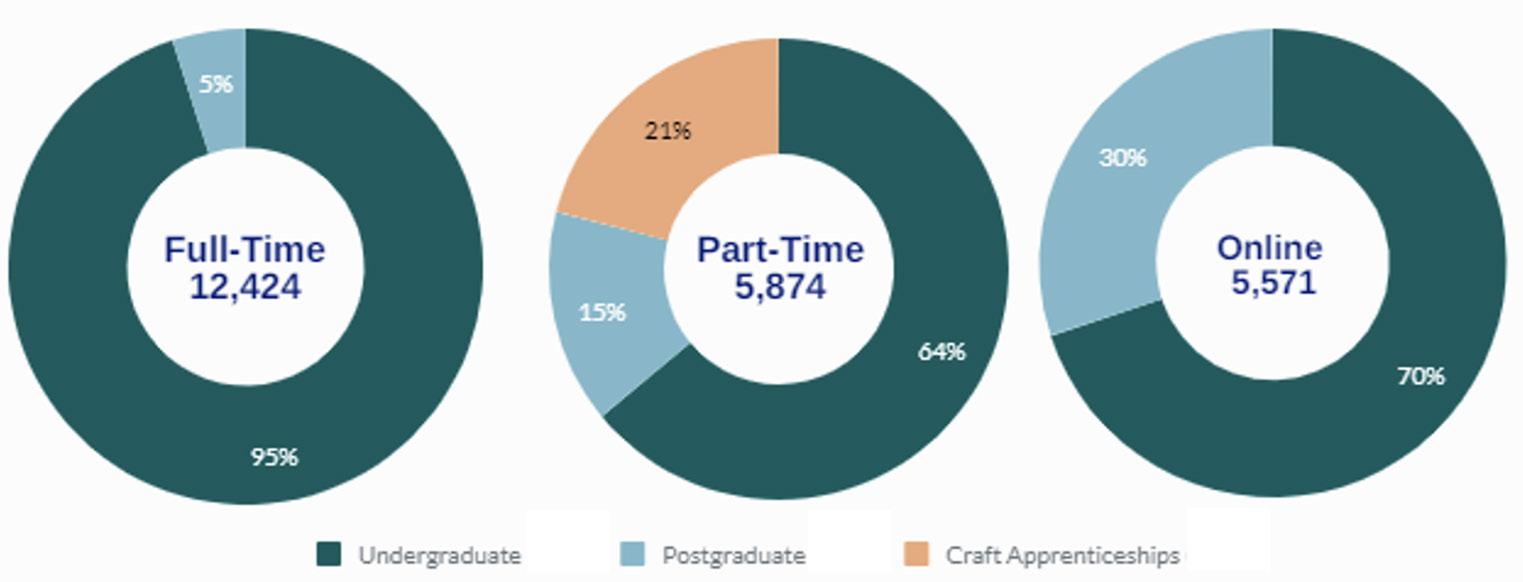
Figure 40: Mode/Level of Study
2 The data source used for the ATU student numbers for the 2022/23 academic year is the annual SRS return made to the Highter Education Authority (HEA) each year. The census date is 1 March 2023. Where national comparators are used, the data is sourced from the Higher Education Authority HERE
3 The figures and graphs in this section do not include our newest campus ATU St Angelas (please see Section 11 for relevant details).
ATU’s student population is enrolled across a range of ISCED categories.4 Figure 41 below includes craft apprenticeships.
Total Enrolments by Field of Study Arts & Humanities
6 %
Social Science, Journalism & Information
Natural Sciences, Mathematics & Statistics 1 2 % Engineering, Manufacturing & Construction
2 6 %
1 % Business, Administration & Law 2 4 % Agriculture, Forestry, Fisheries, & Vet erinary
2 %
Education
2 % Services
6 %
Generic Programmes & Qualifications
1 % Health & Welfare
1 1 %
Information & Communication T echnologies
1 0 %
Figure 41: Percentage Enrolments by Field of Study
Compared to the national average, ATU has higher numbers of students enrolled in some fields of study more than others (Figure 42).5 This is particularly evident in Business, Administration and Law, and Engineering, Manufacturing and Construction. Conversely, we have lower numbers of students in the Arts and Humanities, and Social Sciences, Journalism and Information compared to the national average.

Figure 42: Comparison of Enrolments by Discipline against National Average
4 ISCED is the reference international classification for organising education programmes and related qualifications by levels and fields of which there are 11 Broad Field Categories.
5 This graph does not include craft apprenticeships.
A higher proportion of the ATU student population are male (54%) compared to the national average (45%). This may reflect the significant numbers enrolled on Engineering, Manufacturing and Construction programmes and on Craft Apprenticeship programmes, where enrolments tend to be predominantly male (Figure 43).

Figure 43: Comparison of Male/Female Enrolments against National Average
An analysis of enrolments by ISCED field of study and gender (Figure 44) reveals that higher numbers of males are enrolled in the Engineering, Manufacturing and Construction and ICT sectors while Social Sciences and Health and Welfare have more females enrolled. Other fields of study indicate greater parity of numbers with regard to gender.

The following figures illustrate the types of award programmes upon which our students are enrolled (Figure 45). The majority of our undergraduate students are enrolled on Level 8 programmes.
Overall, the full-time undergraduate progression rate was 74% in 2022/23. Undergraduate first year progression is measured by the presence of students on 1 March, excluding those who re-entered via CAO, who were registered, fulltime, new first time, in year one on 1 March census date in the previous year. This is aligned to the non-progression rate included by the HEA in its sectoral and institutional profiles (Figure 46).

ATU welcomes diversity in its student population. Most new entrants to ATU (full-time, first year students entering third level education for the first time) enter based on second level school leaving exams (73%). In addition, a significant percentage (27%) enter through alternative entry routes (Figure 47). A diversity of entry routes broadens access to education from underrepresented groups and allows students access to programmes of study at ATU with lower levels of educational attainment in recognition of the impact of socio-economic and other disadvantage on accessing education.
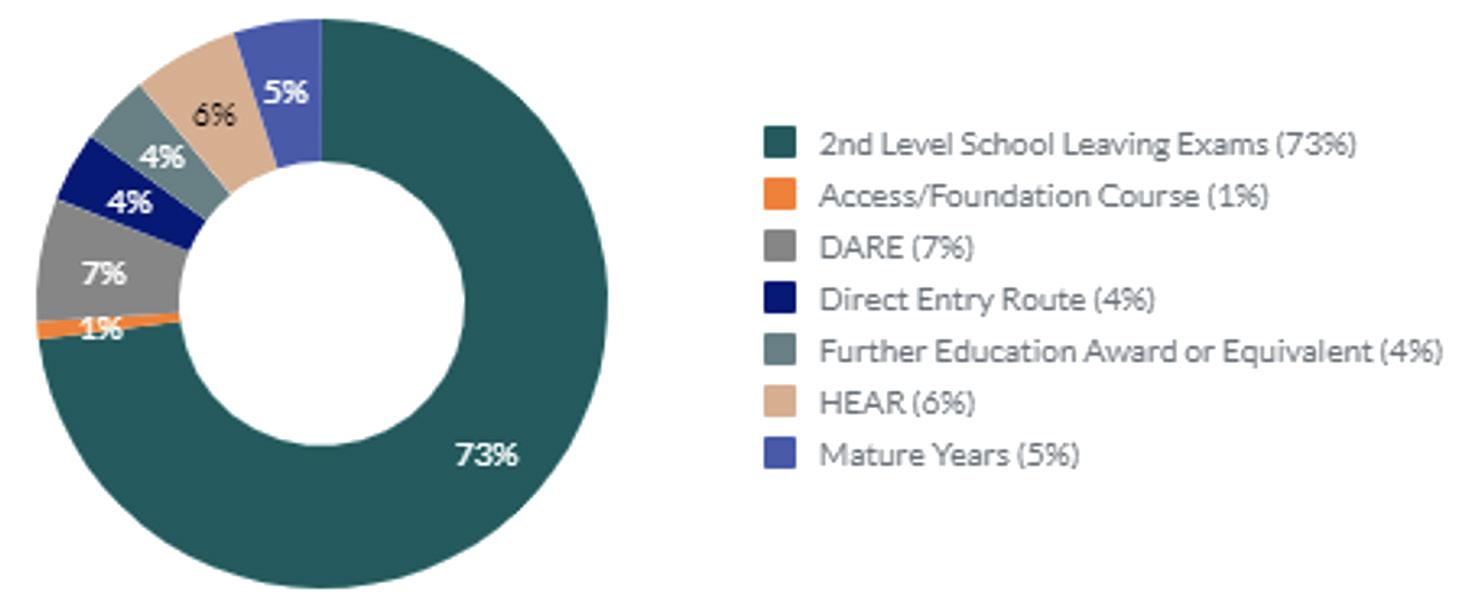
Figure 47: Full-Time Undergrduate New Entrants by Entry Basis
A higher proportion of students studying at ATU come from disadvantaged backgrounds (16%) than any other Higher Education Institution (HEI) funded by the Higher Education Authority (HEA) (Figure 48). The HEA uses Deprivation Index Scores (DIS) to assess the socio-economic profile of higher education students. The DIS measures the relative affluence or deprivation of a particular geographical area and assigns a DIS to the addresses of Irish domiciled students. In 2020/21, the last year for which data is available, 16% of ATU students were disadvantaged, a higher percentage than any other higher education institution supported by the HEA.
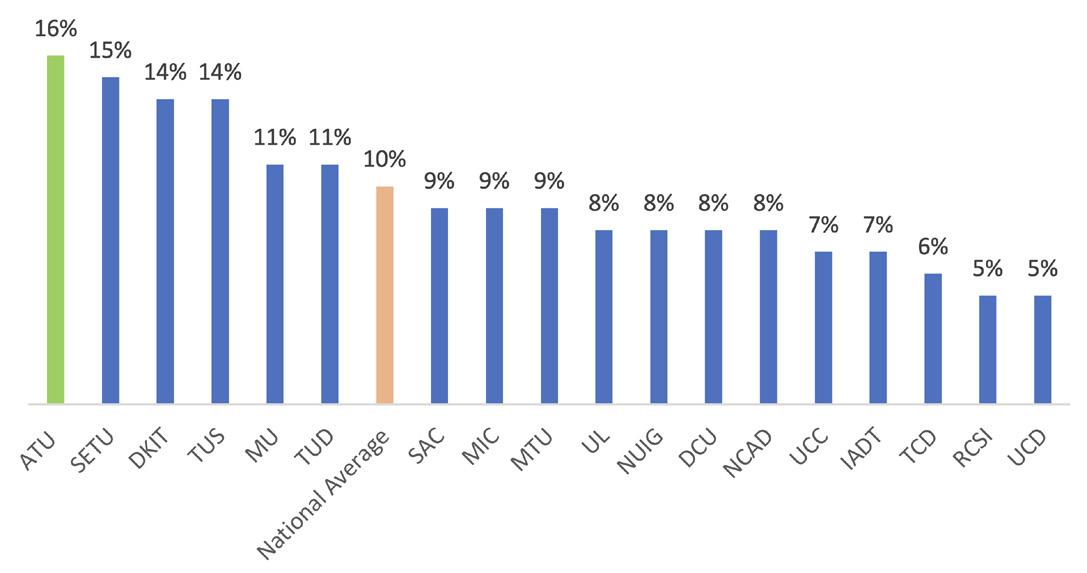
Figure 48: Percentage of Students classified as Disadvantaged Compared to National Average
The Programme for Access to Higher Education (PATH) is a dedicated fund, broken into five strands, committed to increasing participation by under-represented groups in higher education. The fund was established to support the National Plan for Equity of Access to Higher Education 20152019.
PATH Strand 1 – Initial Teacher Education
PATH Strand 2 – 1916 Bursaries
PATH Strand 3 – Higher Education Access Fund
PATH Strand 4 – Universal Design Fund – Supporting inclusive universally designed higher education environments for all
PATH Strand 5 – Traveller Engagement
Participation in all five strands of the Programme for Access to Higher Education (PATH) has enabled ATU to form partnerships and collaborations with underrepresented groups via outreach activities with schools, community organisations and local authorities. Our support programmes address the additional academic, financial, transitional, emotional and social needs for such students to ensure equity of outcome regarding academic progression and development and equal access to graduate opportunities.
ATU continues to build on a long and successful history of craft apprenticeship delivery dating back to the 1970s. We have a strong reputation supporting industries in trades such as Electrical, Motor, Carpentry and Joinery and Tool Making and more recently, Wood Manufacturing & Finishing. In addition, we have in recent years developed a number of Consortium Led Apprenticeships. Figure 49 captures the numbers of students enrolled on our apprenticeship programmes.

50 indicates that the majority of students enrolled in Craft Apprenticeships in 2022/2023 are males.
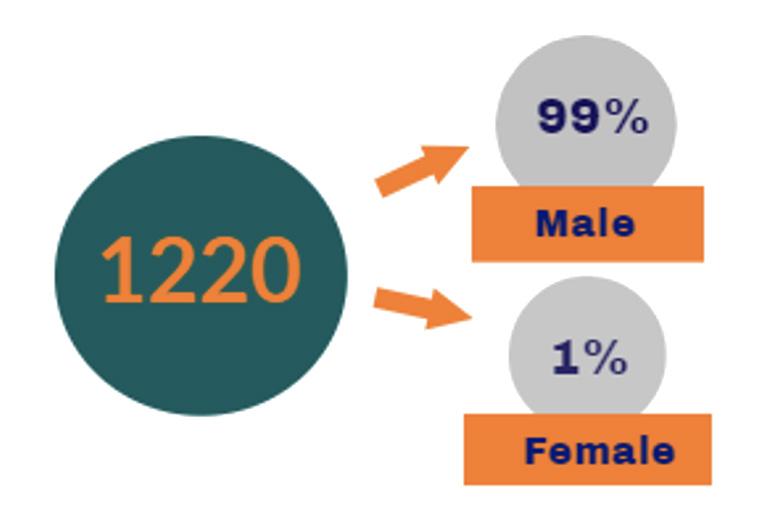
Our staff are the foundation of our success and a key driver of ATU serving our community and our region. The major organisational change required during the ongoing transformation from four legacy institutions into a single Technological University, with nine campuses dispersed across a wide region, has been achieved through the dedication of, and in consultation with, staff across the University. ATU provides a range of services and supports for all our staff. In 2024 32% of our Academic Staff have Level 10 (Doctoral) degrees. A further 133 are currently pursuing a Level 10 degree.
ATU has over 2,500 academic, technical, and professional staff. The following figures display the number and distribution of academic posts, the number of professional, management and support staff and the gender distribution of our staff in 2022-2023.
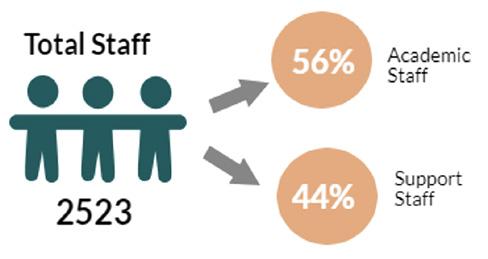

ATU is committed to being a diverse, equal, and inclusive University and is making progress on embedding equality, diversity, and inclusion (EDI) across everything we do. EDI governance includes the Governing Body EDI sub-committee, an EDI Steering Group composed of managers across all functions in the University, and a Steering Group for Preventing and Responding to Sexual Violence and Harassment.
The promotion of equality, diversity and inclusion is the responsibility of all members of the ATU community with all contributing to creating a safe and welcoming environment where everyone can contribute and bring their full identity to work and study. Some examples of our ongoing work are presented below.
Each of the three legacy institutes successfully achieved the Athena Swan Bronze Gender Equality Charter Mark in 2021. Subsequent to the formation of ATU, a merged Gender Equality Action Plan was approved by the Governing Body in Autumn 2022. This along with the restatement of the commitment of the ATU President to the Athena Swan Principles, enabled ATU to be awarded an Athena Swan Bronze “legacy award”. The ATU merged Gender Equality Action Plan is currently being implemented across the University. The University Athena Swan Self-Assessment Team (SAT) have recently begun the work towards renewal of the Institutional Bronze Athena Swan award and applying for Faculty/Departmental awards.
All ATU formal committees strive to achieve gender balance with a minimum of 40% male and 40% female. Recruitment of staff follows HR policies and procedures which align with equality legislation and minimum gender representation for all shortlisting and selection boards of 40% female and 40% male applies. ATU is gathering more data on committee membership as part of the Athena Swan renewal of bronze award process.
A University Preventing and Responding to Sexual Violence and Harassment Policy was approved at the inaugural meeting of the ATU Governing Body. A complementary procedure is currently being finalised. A senior Sexual Violence Prevention and Response Manager (SVPRM) was appointed to ATU in June 2023. This role is responsible for leading ATU programmes for responding to and preventing all forms of sexual violence and sexual harassment. The ATU Steering Group for Preventing and Responding to Sexual Violence and Harassment have worked to merge the three legacy Consent Framework Actions Plans into one plan and are currently implementing this across the University.
Sexual consent classes are available to all students, with a particular focus on first year students. From June until August 2023, the SVPRM and EDI Team prepared for ATU’s first ever awareness/information day on sexual violence – the objective being to raise awareness of sexual violence and its impact, of ATU’s commitments to the Consent Framework (2019) and further enhanced guidelines (2023), and of the internal and external supports and services available to those effected by sexual violence.
The Advance HE Aurora Women in Leadership development and mentorship programme brings together leadership experts and higher education institutions to take positive action to seek to address the under-representation of women in leadership positions in the sector. Since 2019, 91 women have completed the programme.

Atlantic University Rainbow Alliance (AURA) is the LGBTQIA+ staff network of ATU, with Universitywide representation. Established in April 2022, AURA supports LGBTQIA+ staff members and allies.
The University Governing Body, Executive Team and President have committed to the National Anti-Racism Principles for Irish Higher Education Institutions. A Race Equality Network was established and are leading the development of a Race Equality Action Plan.
ATU has an ongoing programme of EDI training in addition to EDI training provided through the N-TUTORR project. Towards the end of 2022/23 we began completion of a staff training needs analysis survey. We will implement a comprehensive training programme for staff linked to the outcomes of this needs-analysis.
ATU was proud to confer awards on the first graduates of our newly established University in 2022. Almost 6000 students graduated from ATU across a wide range of disciplines. Of these, 9% were conferred with a Level 6 award, 28% a Level 7 award, 49% a Level 8 award and 14% a Level 9 award. 12 students were conferred with a Level 10 award. The following figures illustrate aspects of our graduate profile in 2022.

Total Graduates by Field of Study
According to a survey of 2022 graduates, 84.3% were in employment nine months after graduation. A further 9.7% were engaged in further study.
Undergraduate Honours Degree Graduates by Award Classification
First Class Honours
Second Class Honours (Grade 1)
Second Class Honours (Grade 2)
Pass
Figure 58: Undergraduate Degrees by Classification
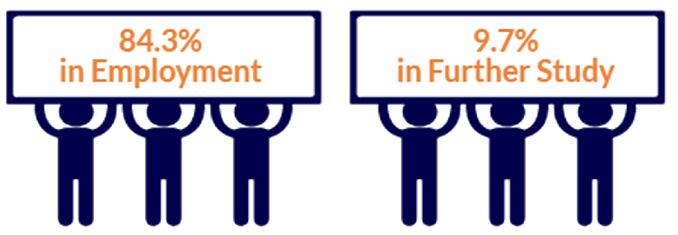
59: Graduate Percentage in Employment and Further Study

““At ATU, we are committed to economic, social and environmental sustainability for our campuses, local communities and the regions, and to the wellbeing of our planet.”
ATU is committed to economic, social, and environmental sustainability for our campuses, local communities, and the region, and to the wellbeing of our planet. As a new progressive University, we want our graduates to positively contribute to a more equitable, inclusive future firmly rooted in the respect and protection of our natural world.
Ireland’s Climate Action Plans 2021 (CAP21) and 2023 (CAP23) stipulate that the public sector will lead by example in delivering on Ireland’s decarbonisation commitments. It commits public sector bodies to completing Climate Action Roadmaps to communicate how they aim to meet the requirements of the Climate Action Mandates 2021 and 2023 and reach its 2030 carbon and energy efficiency targets. We have drafted our first Climate Action Roadmap which is currently out for consultation.
ATU has signed up to the
1. SDG Accord, which is a commitment to report on progress and share experiences and learning across higher education, both nationally and internationally.
2. Race to Zero campaign, which is a global call to rally leadership and action across the education sector globally.
ATU is also a member of the Irish Chapter of Sustainable Development Solutions Network, which is being led by UCC and QUB. In 2023, ATU participated in Advance HE’s Aligning Organisational Strategy to SDGs Programme

ATU is a partner in the EU GREEN European University Alliance which commenced in January 2023. EU GREEN represents Responsible Growth, Inclusive Education, and Environment and is a collaboration between nine universities all based in peripheral areas of Europe. EU GREEN aims to scale up and promote sustainability and the SDGs encompassing economic, societal, cultural, and environmental pillars.
EU GREEN partners collaborate to engage students, staff, and their regional stakeholders towards a sustainable future through education, research, innovation, and engagement, and has an SDG focus on all outputs and activities. ATU lead on the Engagement work package and co-lead the Innovation work package coordinating SDG challenges, training, best practice, and an engagement hub for EU GREEN stakeholders.
ATU has developed a Level 6 Certificate on the Sustainable Development Goals (SDGs) – Partnership, People, Planet, and Prosperity funded through the Human Capital Initiative Higher Education 4.0 project. The aim of the programme is to introduce the theory and application of the SDGs with a particular focus on their application in the regional context. The programme aims to build core knowledge and develop a thorough awareness of the SDG framework. ATU has a wide range of undergraduate and postgraduate programmes where the SDGs are embedded e.g.,
M.Sc. in Outdoor Education, Sustainability, and Well-Being,
M.Sc. in Sustainability Leadership,
M.Sc. in Circular Economy Leadership for the Built Environment,
M.A. in Transformative Practices in Equality, Diversity, and Inclusion, and
M.Sc. in Sustainability in Enterprise
ATU facilitates a Level 9 Certificate on Education for Sustainability for higher education staff (since 2019).


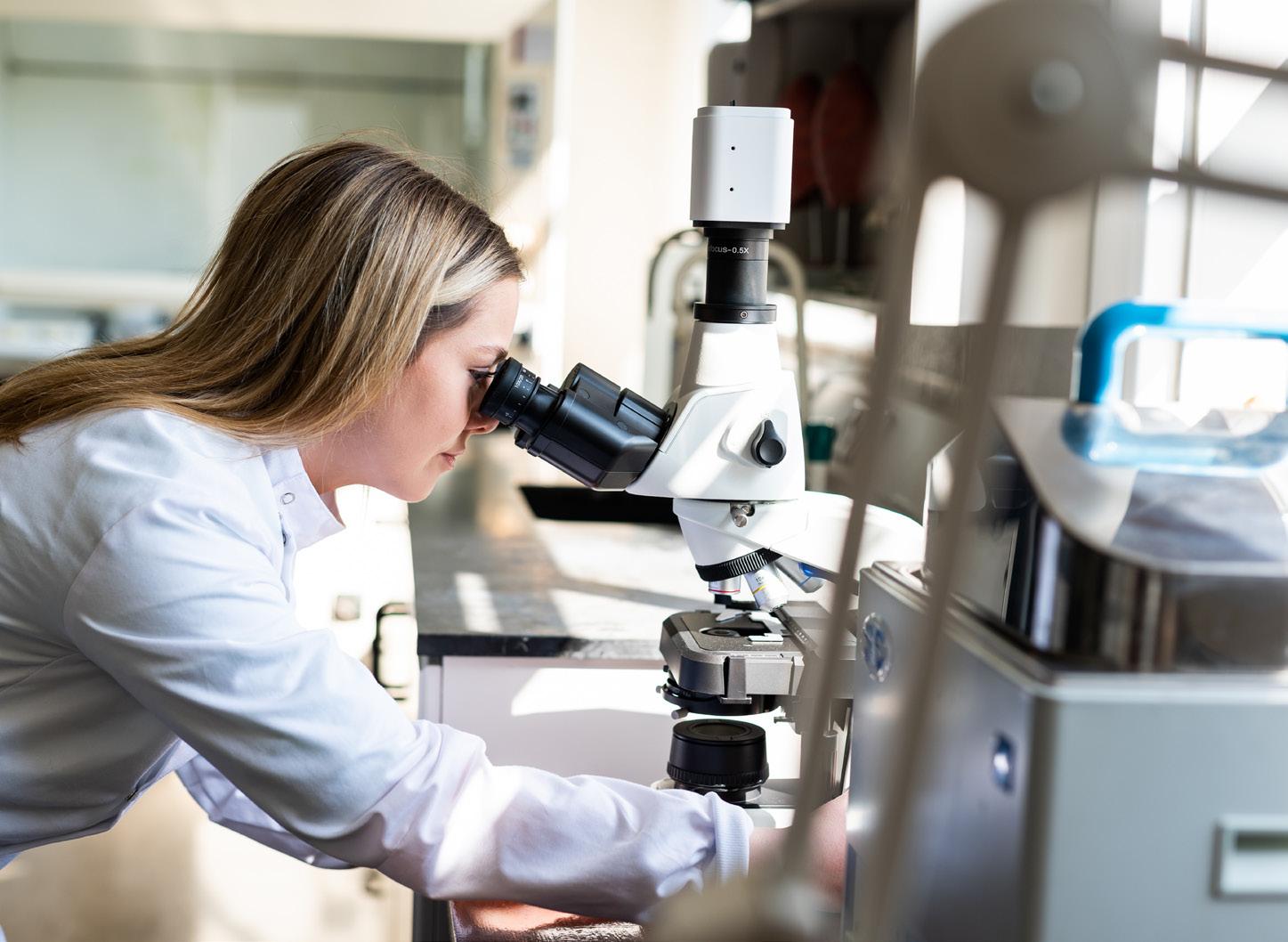
ATU St Angelas offers undergraduate and postgraduate programmes to approximately 1,600 full-time and part-time students and comprises three Academic Schools: Education, Home Economics, and Nursing.

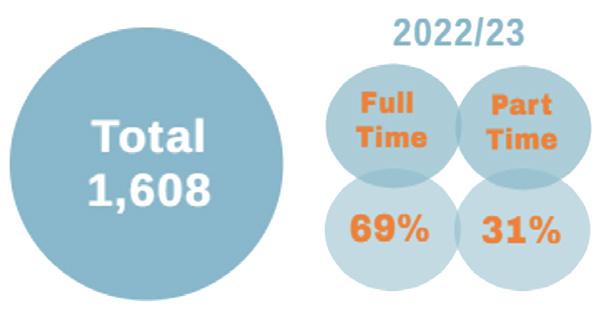
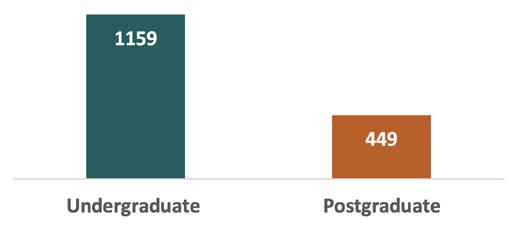
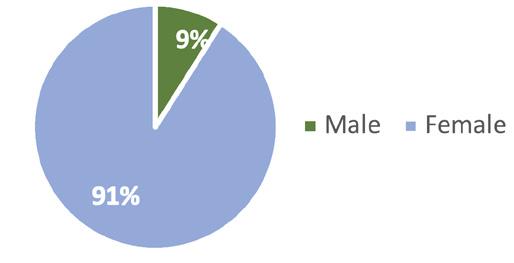
ATU St Angelas has an active Students’ Union (SU) which is now represented across a range of ATU fora. There is one fulltime President position and eight part-time officer positions. The SU is responsible for seven clubs and societies and organise other activities throughout the year.



ATU is currently preparing its first set of Financial Statements for the period from the date of incorporation (1 April 2022) up to 31 August 2023. The information presented below is from the Audited Financial Statements for each of the legacy institutions for the period up to 31 March 2022. The total column presents the combined financial position on 31 March 2022 and the combined Income and Expenditure annualised for the 12 months to 31 March 2022.

Statement of Financial Position as at 31 March 2022
The information presented below has been extracted from the Audited Financial Statements for St Angela’s College CLG for the year ended 31 December 2022.
2,697,417
14,520,582

ACCA - Association of Chartered Certified Accountants
ACOVENE - Accreditation Committee for Veterinary Nurse Education
ACSLM – Academy of Clinical Science and Laboratory Medicine
AQAE - Academic Quality Assurance and Enhancement
AQAEF- Academic Quality Assurance and Enhancement Framework
AQR – Annual Quality Report
ASEAN - Association of Southeast Asian Nations
AsIAm - Autism Spectrum Information Advice and Meeting
ATU – Atlantic Technological University
AURA - Atlantic University Rainbow Alliance
CAP - Climate Action Plan
CIAT - Chartered Institute of Architectural Technologists
CIMA - Chartered Institute of Management Accountants
CIPD - Chartered Institute of Personnel and Development
CLG - Company Limited by Guarantee
CPA - Certified Public Accountants
CPD - Continuing Professional Development
DARE - Disability Access Route to Education
DCU – Dublin City University
DBA - Doctorate in Business Administration
DIS - Deprivation Index Scores
DKIT – Dundalk Institute of Technology
EAIE- European Association for International Education
EDI – Equality, Diversity, Inclusion
EU – European Union
EUA - European University Association
EURASHE - European Association of Universities of Applied Sciences
ESD – Education for Sustainable Development
FSD - Fund for Students with Disabilities
GMIT - Galway-Mayo Institute of Technology
HEA - Higher Education Authority
HEAR – Higher Education Access Route
HIA - Higher Education Institution
IADT – Institute of Art, Design and Technology
IAgre – Insitute of Agricultural Engineers
ICT - Information and Communications Technology
IOSH – Institution of Occupational Safety and Health
INOTE - Innovative Opportunities Transforming Education
ISCED - International Standard Classification of Education
ITS - Institute of Technology Sligo
LSRAH - Letterkenny Regional Sports Activity Hub
LSSIF - Large-Scale Sport Infrastructure Fund
LTA – Learning, Teaching and Assessment
LYIT - Letterkenny Institute of Technology
NDFA - National Development Finance Agency
NFQ – National Framework of Qualifications
N-TUTORR - National Technological University TransfOrmation for Recovery and Resilience national project
MIC
– Mary Immaculate College
MoA – Memorandum of Agreement
MOCHAS - Modelling and Computation for Health and Society
MoU - Memorandum of Understanding
MNC - Multinational Corporation
MTU – Munster Technological University
MU – Maynooth University
NCAD – National College of Art and Design
NUIG – National University of Ireland, Galway
OSCAR - Operations and Supply Chain Research
PATH - Programme for Access to Higher Education
PGT – Postgraduate
PMSS - Professional Management and Support Staff
PPP - Public Private Partnership
PRSB - Professional Statutory and Regulatory Bodies
PRTP - Postgraduate Researcher Training Programme
QAET - Quality Assurance and Enhancement Team
R&D – Research & Development
R&I - Research and Innovation
RCSI – Royal College of Surgeons in Ireland
RIAI - Royal Institute of the Architects of Ireland
RICS - Royal Institution of Chartered Surveyors
RPL - Recognition of Prior Learning
SAC – Saint Angela’s College
SAT - Self-Assessment Team
SATLE- Strategic Alignment for Teaching & Learning Enhancement
SDG – Sustainable Development Goals
SETU - South East Technological University
SME - Small and Medium-sized Enterprises
SRS – Student Record System
STEM - Science, Technology, Engineering and Maths
SU – Student’s Union
SVPRM - Sexual Violence Prevention and Response Manager
SWOT - Strengths, Weaknesses, Opportunities, and Threats
TCD – Trinity College Dublin
THEA – Technological Higher Education Association
TLC - Teaching & Learning Centre
TSSPF - Technological Sector Strategic Projects Fund
TU – Technological University
TUD - Technological University Dublin
TU RISE – Technological University Research and Innovation
Supporting Enterprise
TUS – Technological University of the Shannon
UCC – University College Cork
UCD – University College Dublin
UDL - Universal Design for Learning
UG – Undergraduate
UIIN - University Industry Innovation Network
UL – University of Limerick
UNESCO - United Nations Educational, Scientific and Cultural Organization
UPT - University Planning Team
WTUN - World Technological University Network
Figure 1: Enrolments by County 2022-2023 – 6
Figure 2: ATU at a Glance – 7
Figure 3: Location of ATU’s Nine Campuses Northern and Western Region – 8
Figure 4: ATU Strategic Plan: Vision, Mission, Values – 10
Figure 5: SWOT analysis of the Northern and Western Region (blue boxes) and Thematic Areas where ATU can support sustainable regional development (green boxes) – 11
Figure 6: Strategic Plan Guiding Lights – 11
Figure 7: Interim Governance Structure – 15
Figure 8: Academic Council Committees – 15
Figure 9: Proposed High-Level Organisation Structure – 16
Figure 10: Principles underpinning the Academic Quality Assurance and Enhancement Framework – 19
Figure 11: Schematic diagram of the policy development and review process for the AQAEF – 19
Figure 12: Principles underpinning Programme Development and Validation – 20
Figure 13: Ensuring Quality Assurance – 20
Figure 14: Programme Provision 2022-2023 – 26
Figure 15: Breakdown of ATU Programmes by NFQ Level – 27
Figure 16: Overview of Awards 2022-2023 – 27
Figure 17: PSRB Providers – 28
Figure 18: Higher ED 4.0 – 30
Figure 19: N-TUTORR Programme – 30
Figure 20: ATU Library – 30
Figure 21: Student Services and Supports – 31
Figure 22: Structure of ATU Students’ Unions – 33
Figure 23: Numbers of Clubs and Societies across ATU – 33
Figure 24: ATU National Performance Scores – 34
Figure 25: Overall Student Experience – 34
Figure 26: Number of Research Students by Degree and Gender – 36
Figure 27: Numbers of Research Degree by Discipline – 36
Figure 28: Research Centres and Sectoral Strengths – 37
Figure 29: Growth 2019-2022 and future Projections for Research Expenditure – 38
Figure 30: Outline Schematic of the Capacity, Delivery, Benefits and Outcomes of TU RISE at ATU – 38
Figure 31: Examples of Current Partnerships and Collaborations – 40
Figure 32: ATU Global: Objectives – 41
Figure 33: International Students by World Region – 42
Figure 34: Total Enrolments by Domicile of Origin – 42
Figure 35: International Students by Study Mode – 42
Figure 36: Students by Fee Type – 42
Figure 37: Erasmus and Other Exchange Students – 43
Figure 38: Alumni Pillars – 44
Figure 39: Student Enrolments ATU – 46
Figure 40: Mode/Level of Study – 46
Figure 41: Percentage Enrolments by Field of Study – 47
Figure 42: Comparison of Enrolments by Discipline against National Average – 47
Figure 43: Comparison of Male/Female Enrolments against National Average – 48
Figure 44: Enrolments by Discipline and Gender – 48
Figure 45: Undergraduate and Post Graduate Enrolments by Level and Gender (excluding ATU St Angelas) – 48
Figure 46: First Year Progression by NFQ Level – 49
Figure 47: Full-Time Undergraduate New Entrants by Entry Basis – 49
Figure 48: Percentage of Students classified as Disadvantaged Compared to National Average – 49
Figure 49: Numbers Enrolled on Apprenticeships in a Variety of Disciplines – 50
Figure 50: Craft Apprenticeships Enrolments – 50
Figure 51: Core Staff Profile (Q2 2023) – 51
Figure 52: Total Staff Profile 2022-2023 – 51
Figure 53: Academic Staff and PMSS by Gender 2022-2023 – 51
Figure 54: Graduate Profile by Field of Study – 53
Figure 55: Graduate Profile Undergraduate and Postgraduate Numbers – 53
Figure 56: Graduate Percentage by Gender – 53
Figure 57: Total Graduates by Field of Study – 53
Figure 58: Undergraduate Degrees by Classification – 54
Figure: 59: Graduate Percentage in Employment and Further Study – 54
Figure 60: ATU St Angelas Awards 2022-2023 – 60
Figure 61: ATU St Angelas Student Enrolments 2022-2023 – 60
Figure 62: ATU St Angelas Enrolments be Level 2022-2023 – 60
Figure 63: ATU Total Enrolments by Gender 2022-2023 – 60
Figure 64: ATU St Angelas Graduate Profile 2022 – 60
Figure 65: ATU St Angelas Staff Profile 2022-2023 – 60